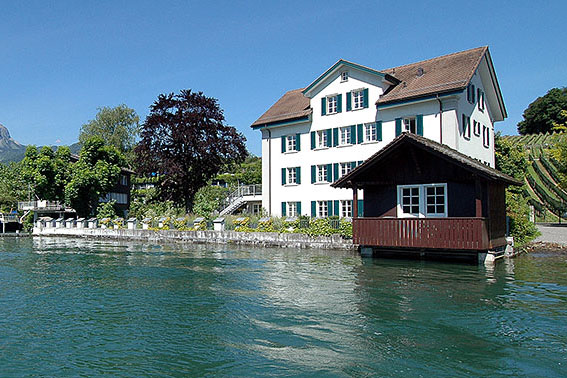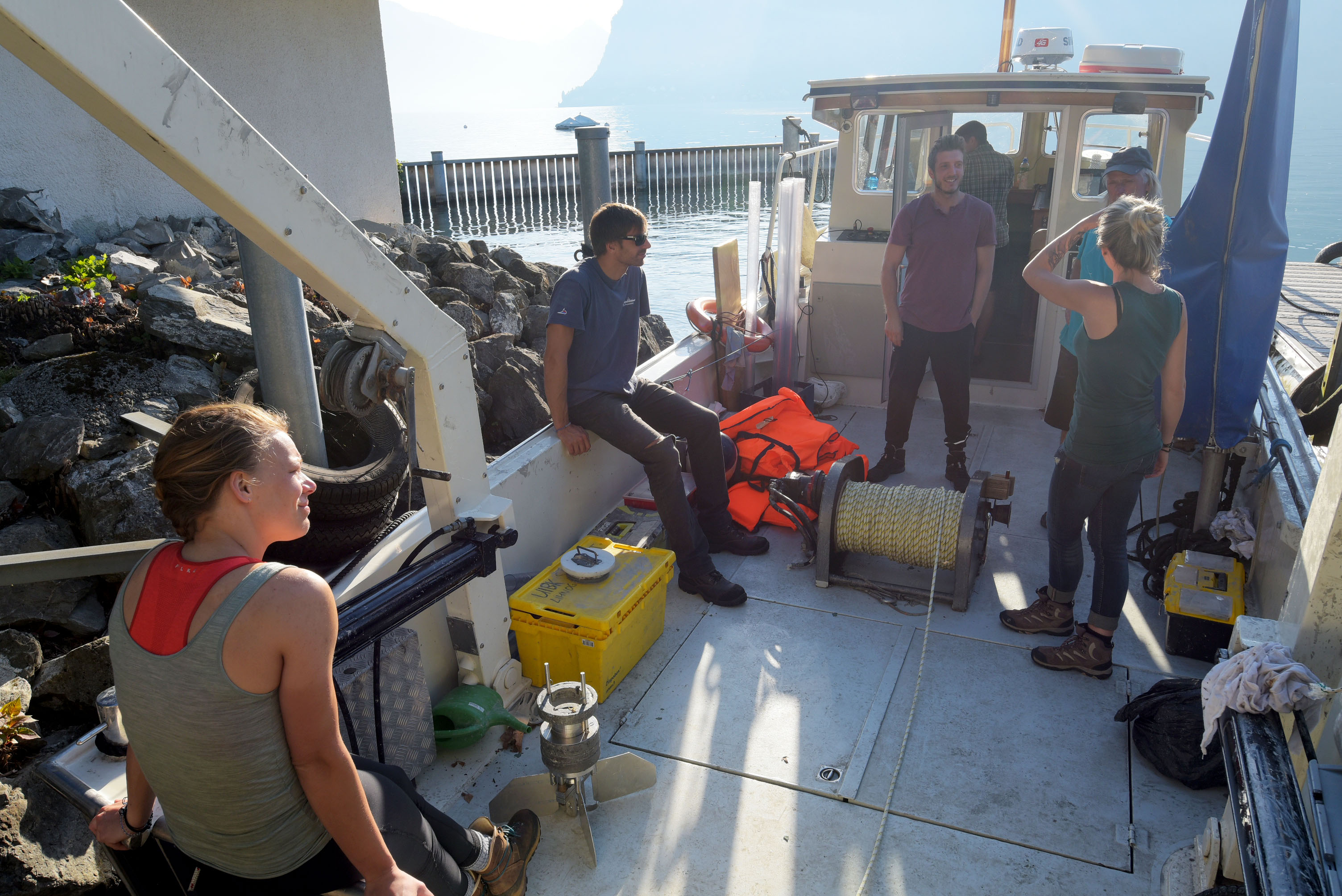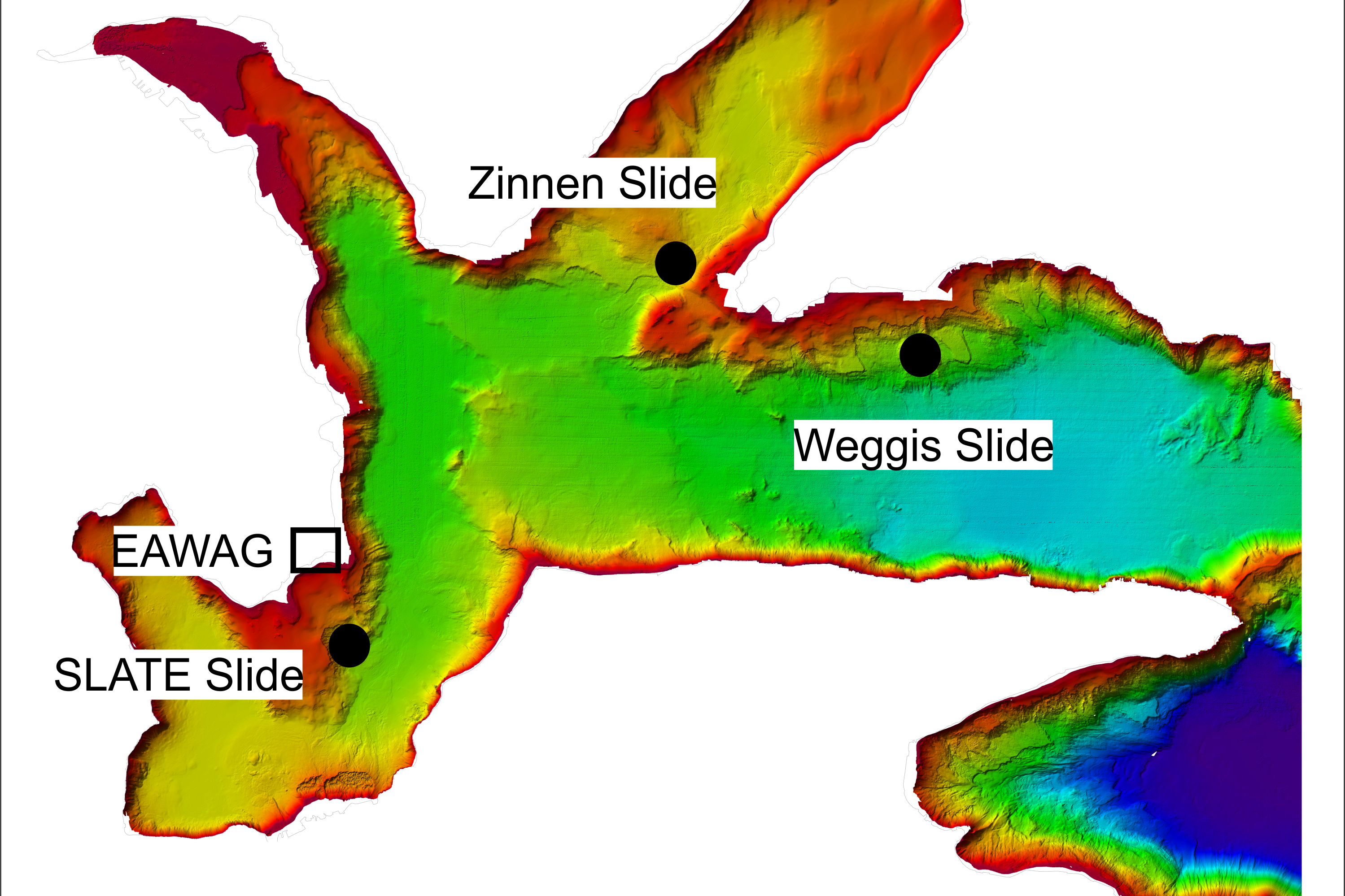ESR 11
@CAU Kiel | 2019-04-10
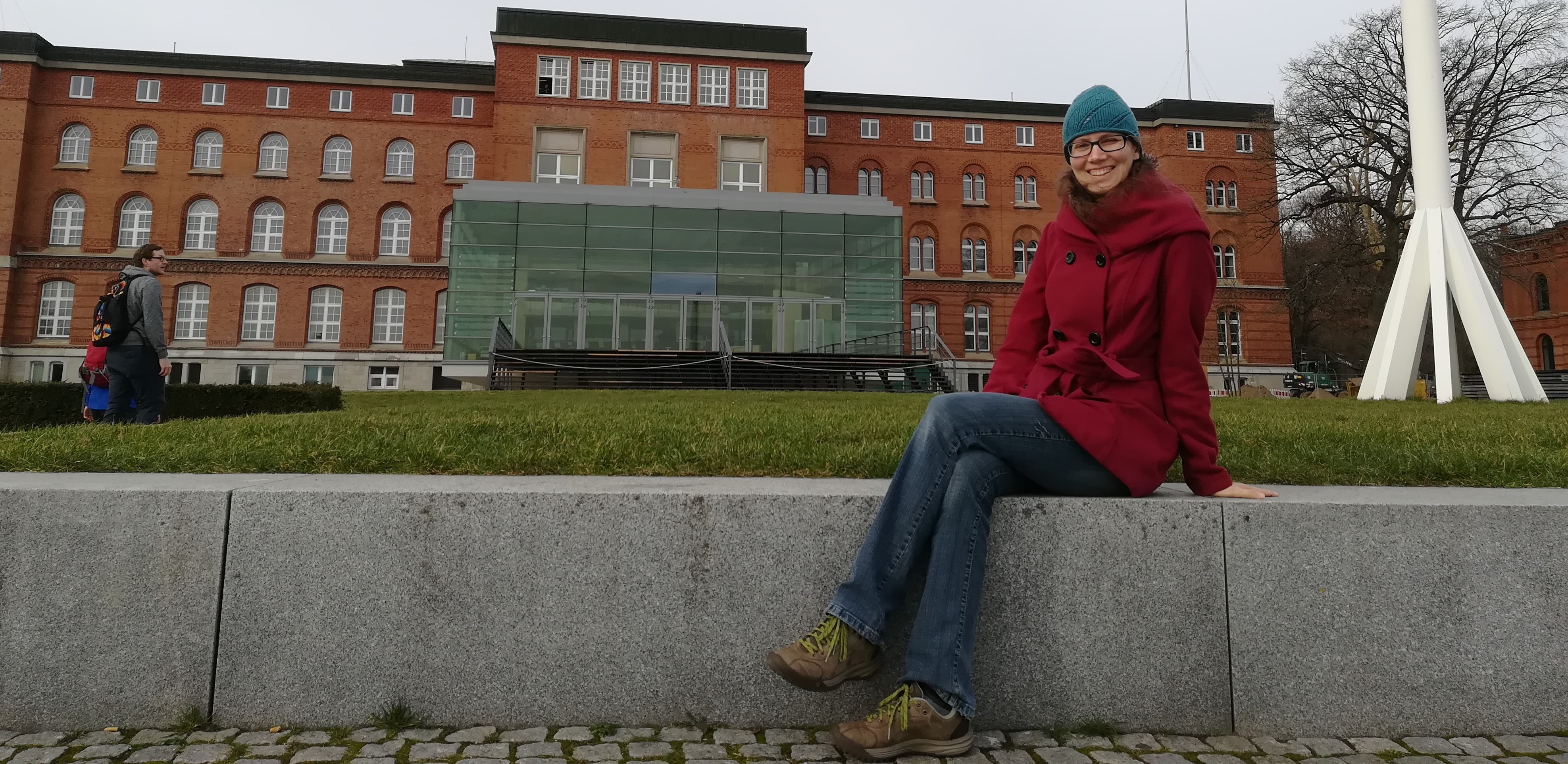
Kiel Visit N° 4
Monika Wiebe (ESR11) | @ CAU Kiel, Germany (4-27 February 2019)
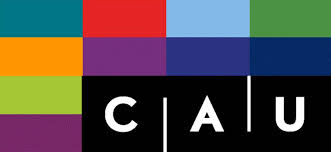
February 2019 brought me back to Kiel – this time for almost four weeks. After my previous three visits (see here, here, and here), I felt almost at home in this charming northern German city. The purpose of another visit was a mixture of the need to get input on seismic analysis, and the desire to get input on my current work progress.
During my stay, I was supervised by Dr. Felix Gross, who helped me with the seismic analysis, and with getting my thoughts organised on how to write a paper. The seismic analysis did not reveal any major results, but having done it myself helped me to better understand the types of data I am dealing with. During meetings with Dr. Gareth Crutchley (GNS Science) and Dr. Morelia Urlaub (GEOMAR) I also got valuable feedback and ideas on how to proceed, which resulted in a new model scenario that I conducted during my stay.
The longer stay also enabled me to see more of Kiel, such as the famous seals in front of the GEOMAR building along the Kieler Förde.
Where?
When?
- 04. - 27.02.2019
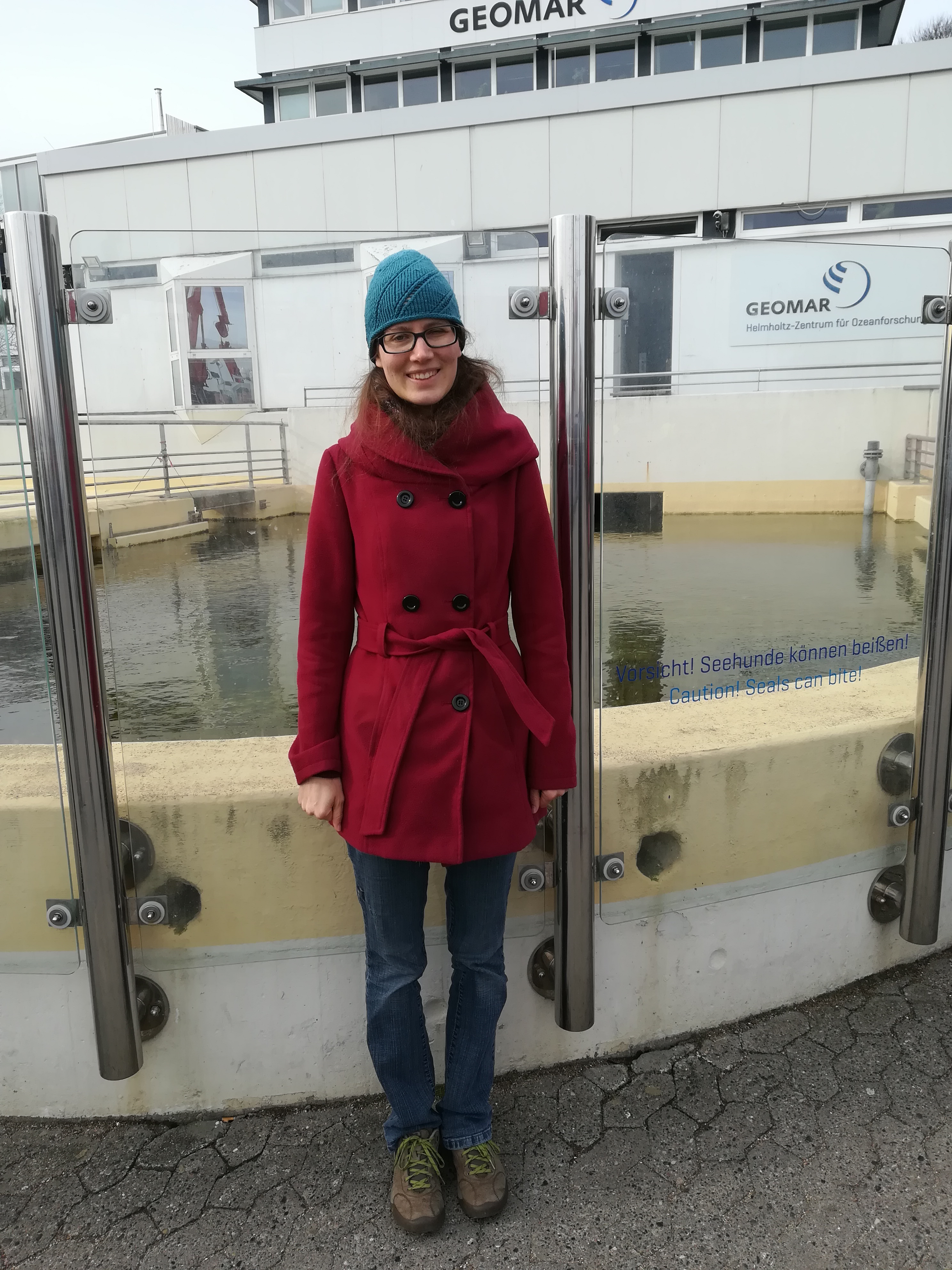
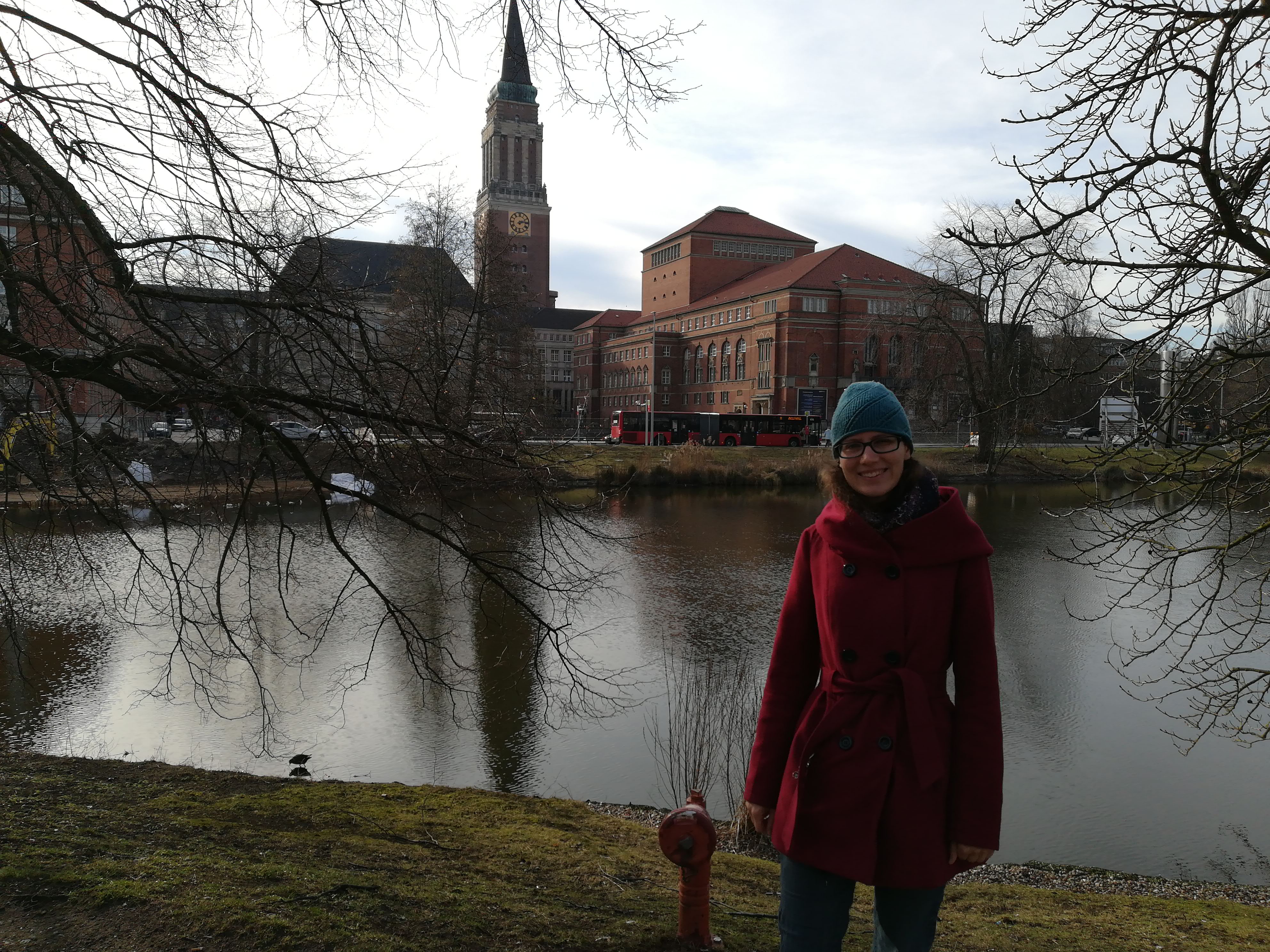
Annual Meeting of the German Geophysical Society (DGG)
Monika Wiebe (ESR11) | @ TU Braunschweig, Germany (3-7 March 2019)
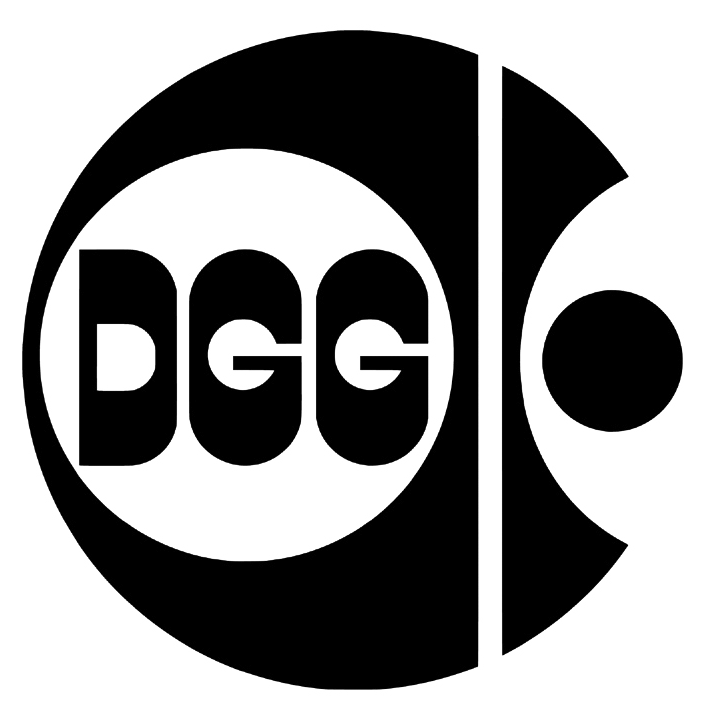 Shortly after my most recent secondment at Kiel University, I had the chance to attend the Annual Meeting of the DGG – the “Deutsche Geophsikalische Gesellschaft” (German Geophysical Society), not to be confused with the “Deutsche Gartenbauwissenschaftliche Gesellschschaft” (German Horticultural Sciences Society). The DGG brings together geophysicists from academia and industry, in order to connect and share knowledge. A number of students also attended the meeting, some of whom even came as larger groups from their universities.
It was my first time attending such a meeting and presenting my work to national and international researchers in form of a poster. Explaining my project to scientists from very different backgrounds and seeing their interest in my work was a good experience for me.
When you come from the University of Bremen, as I do, geophysics is used almost as a synonym for marine seismics. While my previous studies covered the other geophysical disciplines (like gravimetry, magnetics, etc.), few people at the University of Bremen actually apply them. So it was almost surprising for me to see the number of presentations and posters not focusing on marine seismics. I attended a number of different plenary talks and sessions, from geodynamics to seismology to volcanology, and enjoyed the experience of diving into different topics that I don’t usually come across. For example, I discovered that it is worth checking earthquake records on the basis of historic newspaper articles in order to get a complete and verified earthquake catalogue.
Shortly after my most recent secondment at Kiel University, I had the chance to attend the Annual Meeting of the DGG – the “Deutsche Geophsikalische Gesellschaft” (German Geophysical Society), not to be confused with the “Deutsche Gartenbauwissenschaftliche Gesellschschaft” (German Horticultural Sciences Society). The DGG brings together geophysicists from academia and industry, in order to connect and share knowledge. A number of students also attended the meeting, some of whom even came as larger groups from their universities.
It was my first time attending such a meeting and presenting my work to national and international researchers in form of a poster. Explaining my project to scientists from very different backgrounds and seeing their interest in my work was a good experience for me.
When you come from the University of Bremen, as I do, geophysics is used almost as a synonym for marine seismics. While my previous studies covered the other geophysical disciplines (like gravimetry, magnetics, etc.), few people at the University of Bremen actually apply them. So it was almost surprising for me to see the number of presentations and posters not focusing on marine seismics. I attended a number of different plenary talks and sessions, from geodynamics to seismology to volcanology, and enjoyed the experience of diving into different topics that I don’t usually come across. For example, I discovered that it is worth checking earthquake records on the basis of historic newspaper articles in order to get a complete and verified earthquake catalogue.
Where?
- TU Braunschweig
When?
- 03. - 07.03.2019
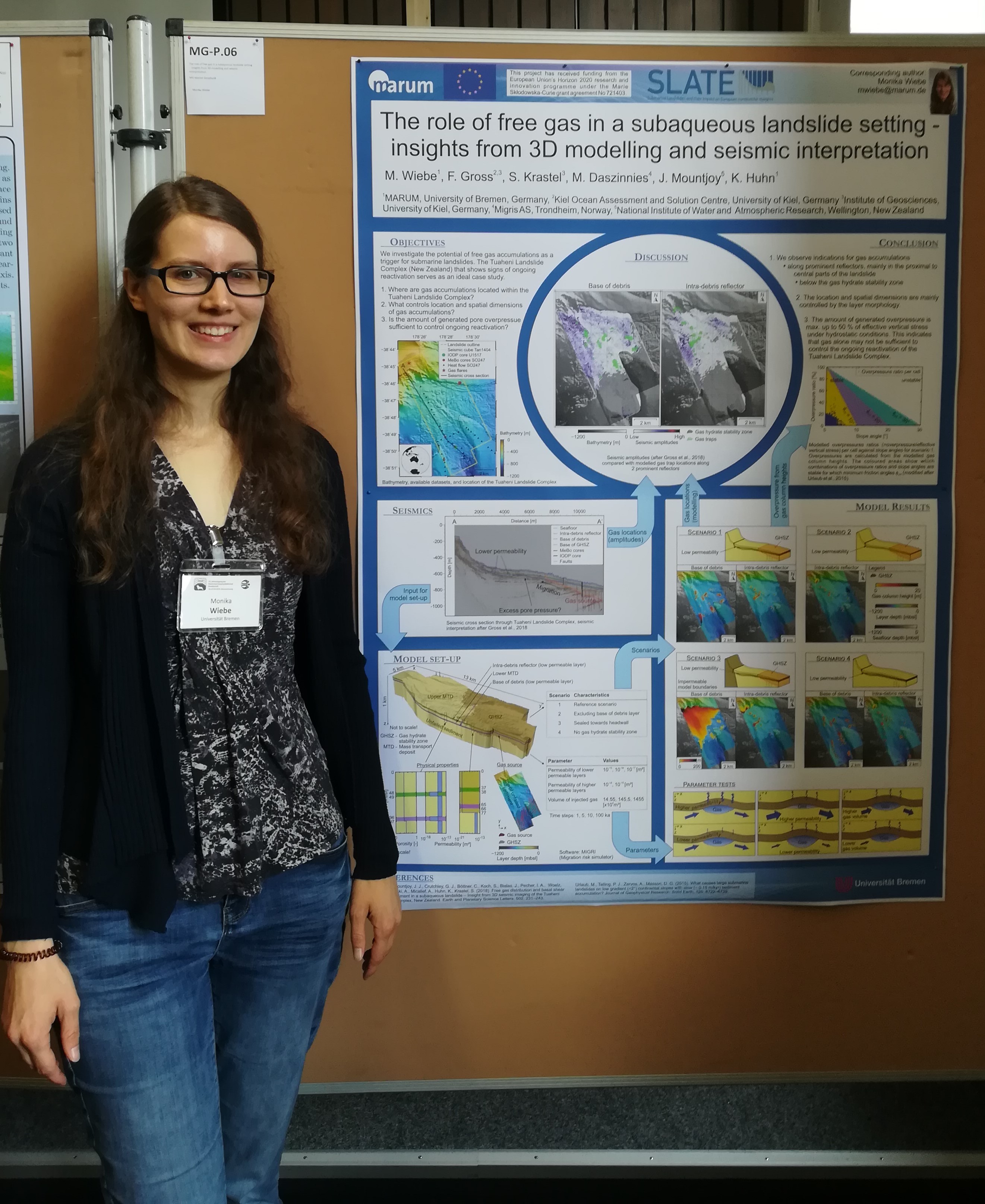
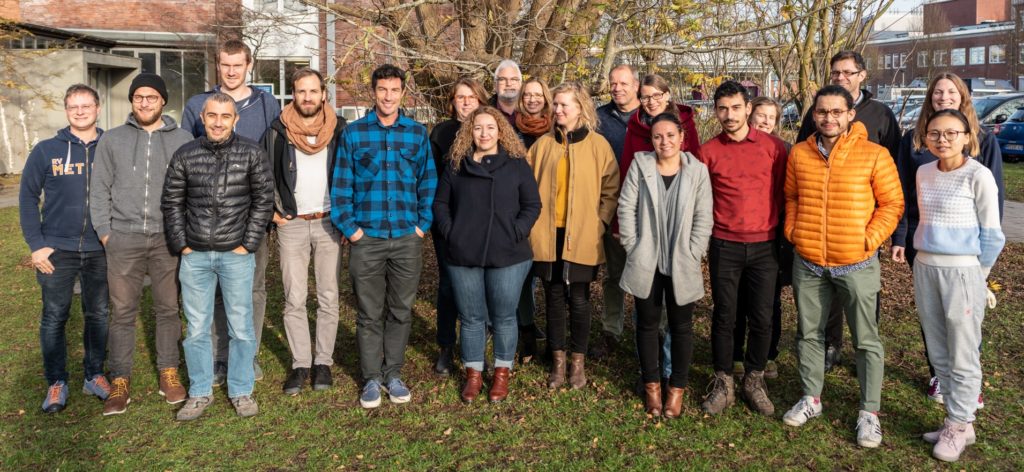
Discussing science - the Tuaheni landslide workshop
Monika Wiebe (ESR11) | @ CAU Kiel, Germany (29-30 November 2018)
 The Tuaheni landslide complex offshore New Zealand is one of the most (if not the most) studied landslide complex in recent times. In the last five years, it has been the focus of three research cruises involving multi-national teams of scientists – RV Tangaroa cruise Tan1404 in 2014, RV Sonne cruise SO247 in 2016, and JOIDES Resolution cruise JR372 in 2017/18. Multiple types of data and material have been collected during this time, including a 3D P-Cable seismic cube and sediment cores up to 180 m long. Scientists are continuing to process these data in order to get a better understanding for submarine landslides in general, and the Tuaheni landslide in particular. With so much work happening simultaneously but spread over the whole globe, it is challenging to keep track of who is doing what and which results have been produced already. To address this problem, scientists studying the Tuaheni landslide decided to come together during a two-day workshop to discuss their recent findings and ongoing work. As I also work on the Tuaheni landslide, this includes me.
In total 18 participants of six different nationalities travelled to Kiel for the Tuaheni workshop which took place on 29-30 November. I was already familiar with many of the names from paper reading, so it was great to finally be able to associate them with actual people. The first day of the workshop began with introductory talks about the objectives and main outcomes of the three expeditions mentioned above – these have provided the basis for research on the Tuaheni landslide. Then all participants had the chance to present how they have used the data, what they found out, and what they are planning to do in the future. A field trip that had been planned for after lunch on the first day unfortunately had to be cancelled, due to typical rainy November weather in Kiel. Instead, we discussed how to proceed with the workshop and which questions should be addressed in the remaining time. A joint dinner gave us the chance to continue discussions and get to know each other better.
The second day of the workshop was mainly used to work through the topics and questions that had been raised the previous day. We could not solve all of them during the course of that day – naturally – but we managed to come up with some strategies on how best to tackle these open questions. In the end we all agreed that, while we might not have found the big new exciting solution for how the Tuaheni landslide works, the workshop itself was beneficial to all of us. We are planning to meet again next year, when we might be another step closer to unravelling the mysteries of the Tuaheni landslide.
For me, the workshop was part of another secondment to Kiel. I used the days before and after to have more meetings with researchers there to discuss my recent progress and future plans. During my everyday work, I tend to focus on the difficulties and problems that arise. Attending the workshop helped me to see the broader picture and also my own work from a different perspective. I am confident that the contacts I gained and feedback I received will help me in my future progress, and look forward to next year’s workshop.
The Tuaheni landslide complex offshore New Zealand is one of the most (if not the most) studied landslide complex in recent times. In the last five years, it has been the focus of three research cruises involving multi-national teams of scientists – RV Tangaroa cruise Tan1404 in 2014, RV Sonne cruise SO247 in 2016, and JOIDES Resolution cruise JR372 in 2017/18. Multiple types of data and material have been collected during this time, including a 3D P-Cable seismic cube and sediment cores up to 180 m long. Scientists are continuing to process these data in order to get a better understanding for submarine landslides in general, and the Tuaheni landslide in particular. With so much work happening simultaneously but spread over the whole globe, it is challenging to keep track of who is doing what and which results have been produced already. To address this problem, scientists studying the Tuaheni landslide decided to come together during a two-day workshop to discuss their recent findings and ongoing work. As I also work on the Tuaheni landslide, this includes me.
In total 18 participants of six different nationalities travelled to Kiel for the Tuaheni workshop which took place on 29-30 November. I was already familiar with many of the names from paper reading, so it was great to finally be able to associate them with actual people. The first day of the workshop began with introductory talks about the objectives and main outcomes of the three expeditions mentioned above – these have provided the basis for research on the Tuaheni landslide. Then all participants had the chance to present how they have used the data, what they found out, and what they are planning to do in the future. A field trip that had been planned for after lunch on the first day unfortunately had to be cancelled, due to typical rainy November weather in Kiel. Instead, we discussed how to proceed with the workshop and which questions should be addressed in the remaining time. A joint dinner gave us the chance to continue discussions and get to know each other better.
The second day of the workshop was mainly used to work through the topics and questions that had been raised the previous day. We could not solve all of them during the course of that day – naturally – but we managed to come up with some strategies on how best to tackle these open questions. In the end we all agreed that, while we might not have found the big new exciting solution for how the Tuaheni landslide works, the workshop itself was beneficial to all of us. We are planning to meet again next year, when we might be another step closer to unravelling the mysteries of the Tuaheni landslide.
For me, the workshop was part of another secondment to Kiel. I used the days before and after to have more meetings with researchers there to discuss my recent progress and future plans. During my everyday work, I tend to focus on the difficulties and problems that arise. Attending the workshop helped me to see the broader picture and also my own work from a different perspective. I am confident that the contacts I gained and feedback I received will help me in my future progress, and look forward to next year’s workshop.
Where?
When?
- 29. - 30.11.2018
GLOMAR - the bremen international graduate school for marine sciences
Ting-Wei Wu (ESR7), Ricarda Gatter (ESR9), Monika Wiebe (ESR11) | 08 October 2018
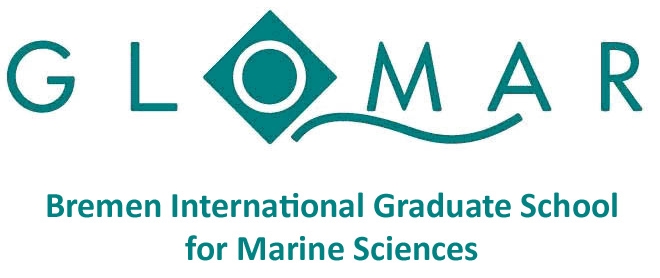
The life of a PhD student can be tough – it means being in this in-between-state of being a student and a researcher. It means having your own research project while still lacking some of the experience, skills and knowledge of advanced researchers. There are many tasks to balance: working on your project, writing scientific papers, presenting your work to smaller and larger audiences, and acquiring all the hard and soft skills in order to accomplish the above. In addition, you start to think about your future career, you may teach and supervise younger students, while coping with stress, deadlines and failures.
In order to help PhD students through this part of their life and support them, the Bremen International Graduate School for Marine Sciences has been founded in 2006. Originally it focused on ‘Global Change in the Marine Realm’ (where the name GLOMAR comes from). However, since 2012 it is open to PhD students from all fields of marine sciences. This does not refer exclusively to natural sciences. GLOMAR also includes students from social sciences or law, as long as their project revolves around the marine realm. This structure helps the students to handle one of today’s major challenges – thinking interdisciplinary and out of their own little boxes.
Generally, GLOMAR can be described as a support network that helps its members to cope with their struggles in different ways, some of which are described in more detail below. Being part of GLOMAR means being part of a large network. It includes fellow PhD students who share similar experiences and challenges, as well as research associates and alumni who know what it takes to complete a PhD successfully. GLOMAR offers the chance to participate in a wide range of courses and seminars that train the students’ hard and soft skills. It also grants access to receive funding for research stays, conferences, or placements in the industry. Apart from these aspects, one should not underestimate the social activities that bring PhD students together, like the GLOMAR barbeque or regular pub evenings. Overall, GLOMAR provides support, encouragement, and training for young researchers in this early stage of their career.
GLOMAR Seminars
One of GLOMAR’s best traits are its monthly seminars. These seminars set out to guide and train PhD students on their road to becoming great scientists with a broad interdisciplinary understanding. PhDs can attend research and year-group seminars that are alternating every month. Research seminars invite students of the same research theme, while year-group seminars separate the students according to the start of their project.
GLOMAR provides scientific support and training in the framework of four research themes: (A) Ocean and Climate, (B) Ocean and Seafloor, (C) Ocean and Life, and (D) Ocean and Society. Upon entering GLOMAR, new PhD students can join the theme which best represents their PhD topic. We – Ting-Wei (ESR 7), Ricarda (ESR 9) and Monika (ESR 11) – joined GLOMAR in 2017 and are part of the research theme ‘Ocean and Seafloor’.
Networking at Conferences (Research Theme B Seminar)
As new members of GLOMAR’s Research Theme B, we (Ting-Wei and Ricarda) gave a short presentation about our academic background and current research. This presentation was a great opportunity for us to introduce our research to a broader scientific community, and practice giving presentations in general. The feedback from the subsequent group discussions also helped us to improve and further develop our research. Although all the PhD students in the Research Theme B Seminar work on the theme ‘Ocean and Seafloor’, this includes a variety of different topics, as well as the application of numerous methods. Therefore, if we are planning to use a new method (e.g., geotechnical experiments to get input data for numerical models), we can find the necessary help and expertise in these seminars.
The following discussion on ‘Networking at Conferences’ was also very beneficial. PhD students who have been to conferences talked about the advantages and disadvantages of large and small conferences, and mentioned upcoming conferences and workshops that could be of interest to us.
How to make a good poster? (Group of 2017 Seminar)
As usual, our seminar started with the announcement of upcoming workshops and courses, and the opportunity for us PhD students to ask questions and discuss problems we are currently facing. This exchange with one another has proven to be very useful, because we all started our projects at around the same time. Therefore, especially regarding administrative issues (e.g., application procedures to be accepted as a PhD student by the University of Bremen), we can often help each other and give advice.
Dr. Martin Lukas, the associate scientist of Group 2017, started the main part of the seminar by giving a short presentation about the rules and recommendations of poster preparation and presentation. He illustrated some rules with examples of ‘good’ and ‘bad’ posters. The most helpful aspect of the seminar was that after hearing about the dos and don’ts, we evaluated and discussed our own posters. PhD students who were planning to go to conferences could present their posters and get feedback on the structure and organisation, and the comprehensibility of the poster.
GLOMAR Courses
GLOMAR also offers a range of different courses in order to provide the PhD students with the necessary knowledge and training.
Courses cover the following topics:
(1) Basic knowledge – these courses aim to provide general and basic knowledge that the students need to successfully advance in their research, such as earth system modelling, stratigraphic methods and age models, or coastal dynamics.
(2) Basic Skills and Methods – next to the basic knowledge, the students also need the right tools to be able to advance in their research. These courses teach basic skills and methods that might be useful for students of different fields, e.g. using R and ArcGIS, or scientific writing.
(3) Transferable Skills – in addition to these basic skills and methods, students have the chance to take courses on more general and universal competences, like leadership and presentation skills, or project and time management. Taking the course ‘Good Scientific Practice’ is a requirement for every PhD student at MARUM, as it is essential in today’s research.
(4) Specific Knowledge – these courses build upon the basic knowledge and go deeper to provide some more detailed and expert knowledge, as experienced by the seven SLATE ESRs who attended the ECORD training course in April 2018.
(5) Public Engagement – this comprises all kinds of courses that aim to train the students in science communication and public outreach, which has become a stronger focus in the last years. This includes using twitter, writing for the public, or making scientific short films.
(6) Overarching Topics – these courses are not related to a specific field, but are relevant to students from all marine fields. Courses include topics such as marine law or policy-making.
Overall, GLOMAR courses offer great opportunities for PhD students. Not only are they providing deeper insights into different research fields, they also promote multi- and trans-disciplinary thinking, which is an important aspect of education.
Good Scientific Practice
GLOMAR offers the course ‘Good Scientific Practice’ once or twice a year. In January, Ting-Wei and Ricarda had the chance to participate. Prof. Dr. Reinhard X. Fischer, the Ombudsperson of natural sciences in the University of Bremen, started the course by presenting a few cases in which people did not conduct good scientific practice. One of the most spectacular ones was the case of J. H. Schön. Evidence of Schön’s misconduct was found in at least 13 of his publications, in which he forged data and experiments. Other examples were the well-known cases of K.-T. zu Guttenberg and A. Schavan, who were both accused of plagiarism in their PhD theses and revoked their doctor titles.
While these are some examples of rather obvious misconduct, there are also many possibilities to commit misconduct unintentionally, as described by Prof. Dr. Dierk Hebbeln and Dr. Christina Klose. Some important aspects to know are as follows:
§ You need the approval of the journal’s publisher, if you want to reuse one of your previously published figures.
§ Reference your own papers the way you reference others.
§ Never ignore outliers in your data just because they do not fit the trend or your expectations.
Apart from this, it is important to talk about authorship as soon as possible. Thing about who made significant contributions to the concept of the study or experiments, the generation, analysis and interpretation of the data, and the preparation of the manuscript. Furthermore, ideas communicated only orally need to be referenced as such.
Graduate Symposium 'Career Paths of Marine and Climate Scientists' 2018
In May 2018, GLOMAR organised a ‘Career Paths Day’ along with other graduate programmes. They invited speakers with different professions outside of academia to talk about their work and career path. Within the world of university research, it is sometimes hard to get an idea of the available jobs. The Career Paths Day, which has been organised every second year since 2014, sets out to change this and to show the wide range of possibilities.
19 speakers talked about their present jobs, and about the paths they took to get there. During the symposium, two talk sessions and two round table sessions were held at the same time. Usually the speakers gave a talk first, and then attended a round table meeting with a smaller group of maximum ten students who had signed up beforehand. These meetings, as well as coffee and lunch breaks, allowed students to meet the speakers personally, and ask all the questions for which there was no time during the talk.
The symposium was very well attended and a great success. It was exciting to hear about the different jobs people with the same educational background are carrying out, and about the possibilities outside academia. Apart from that, the speakers gave some valuable input into how to finish a PhD successfully and how to develop a career.
Impressions from ESR students “I really love GLOMAR, especially the courses, because they really fill the gaps of my previous knowledge. As a graduate of ‘Marine Physics’, I actually do not have a strong background in geology. Thanks to GLOMAR, I am able to widen my knowledge in different fields, and this facilitates my collaboration with other researchers having different expertise.”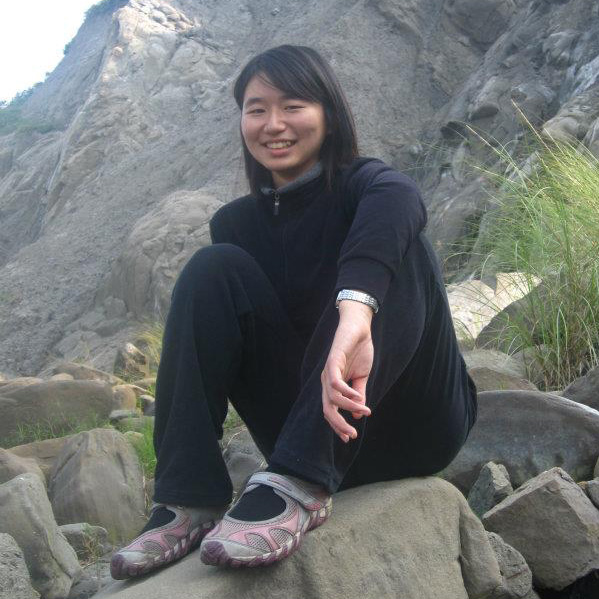 Ting-Wei Wu
ESR 7
“GLOMAR gives us the opportunity to meet people from different disciplines, and learn about their work. I really enjoy our seminars and the GLOMAR courses, which allow me to grow as a scientist. In addition, as a member of MARUM I want to know what research is currently carried out within the institute and how this research might relate to my own project. Meeting other PhD students from the University of Bremen at GLOMAR workshops and meetings enables me to have useful scientific discussions and to refine the direction of my own research.”
Ting-Wei Wu
ESR 7
“GLOMAR gives us the opportunity to meet people from different disciplines, and learn about their work. I really enjoy our seminars and the GLOMAR courses, which allow me to grow as a scientist. In addition, as a member of MARUM I want to know what research is currently carried out within the institute and how this research might relate to my own project. Meeting other PhD students from the University of Bremen at GLOMAR workshops and meetings enables me to have useful scientific discussions and to refine the direction of my own research.”
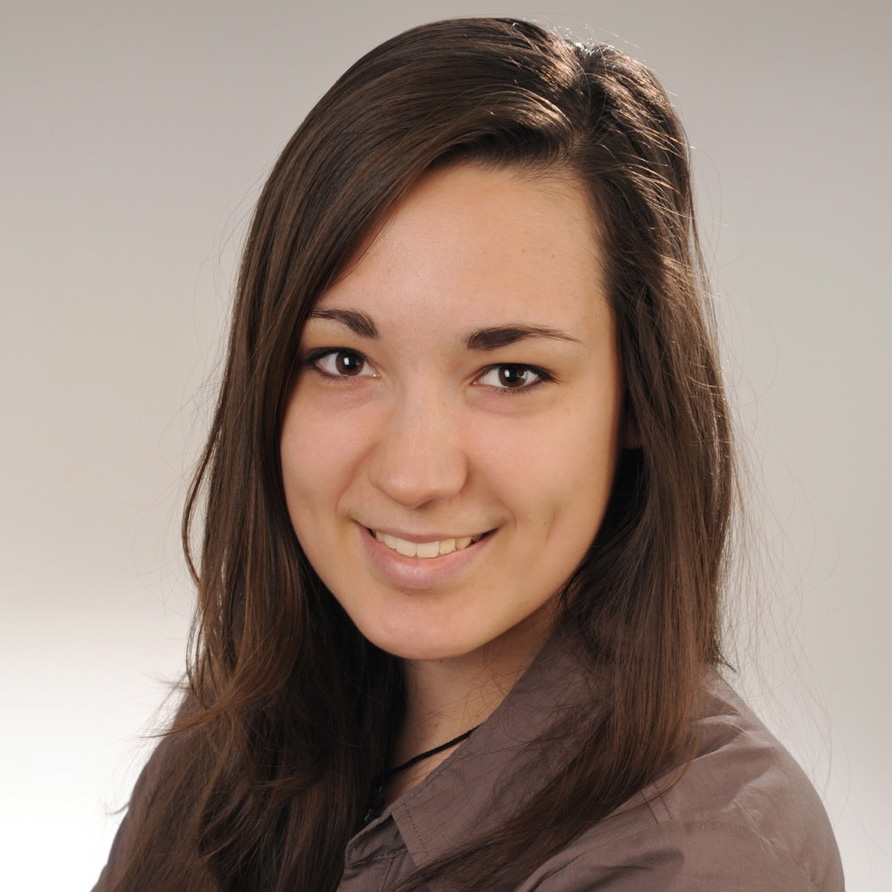 Ricarda Gatter
ESR 9
“At first I was not sure what else GLOMAR could offer us, as we are already part of a structured training network, SLATE. Many of the key features, like thesis committee meetings, hard and soft skill courses, and research funding are also key features of SLATE. But while SLATE is a more global network of people working interdisciplinary on the same research topic, GLOMAR offers a more local network of people from a wider range of research disciplines and fields. I especially enjoy the GLOMAR seminars, which are a good way to discuss different topics in small groups in a short time frame, and to get direct support from the other students and research associates.”
Ricarda Gatter
ESR 9
“At first I was not sure what else GLOMAR could offer us, as we are already part of a structured training network, SLATE. Many of the key features, like thesis committee meetings, hard and soft skill courses, and research funding are also key features of SLATE. But while SLATE is a more global network of people working interdisciplinary on the same research topic, GLOMAR offers a more local network of people from a wider range of research disciplines and fields. I especially enjoy the GLOMAR seminars, which are a good way to discuss different topics in small groups in a short time frame, and to get direct support from the other students and research associates.”
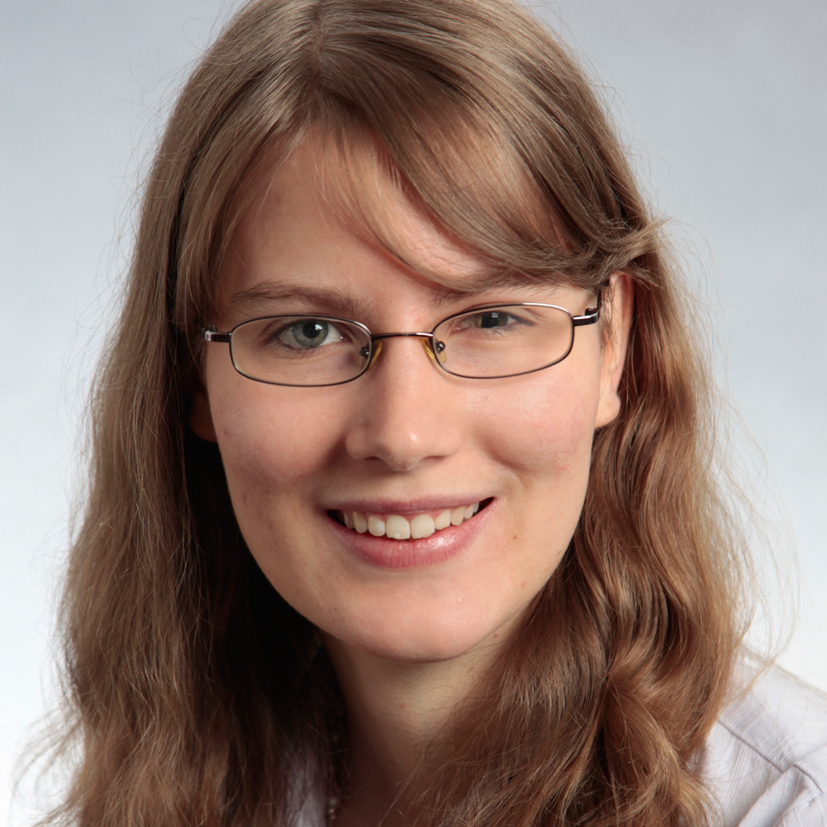 Monika Wiebe
ESR 11
Where?
Links
Monika Wiebe
ESR 11
Where?
Links
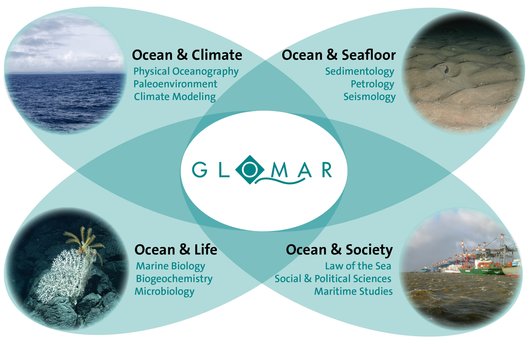
expert courses | 2018-10-16

Lake Lucerne Workshop - Expert courses
Jonathan Ford (ESR2), Monika Wiebe (ESR11), William Meservy (ESR12) | @ EAWAG Kastanienbaum, Switzerland (9-16 September 2018)
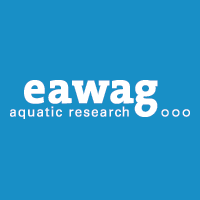
Aside from doing science, the annual workshops are an opportunity for the group to participate in specific training courses together. During the Lake Lucerne workshop, two members of The Catalyst—an improv comedy and science communication collective—visited to deliver courses focused on better communicating our work to the scientific community and the wider public.

“Established in 2012 in Lausanne, Switzerland, The Catalyst is a group of scientific researchers and professionals that uses entertainment as a means of engagement with the public.”
Presentation Skills for Scientists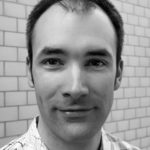 Samuel Lagier
Scientist / Science Communicator
Samuel Lagier
Scientist / Science Communicator
The presentation skills course started with a simple task: say your name and an object that you like and why you like it. The aim of this was for Samuel Lagier to learn our names, but also to show us how to create connections between a presenter and an audience—in this case through short personal stories. We then went on to discuss what makes a talk bad, and the basics of how to make a talk good. The main message of this course was to help us understand that a presenter is in a lot of ways like a mountain tour guide: they first need to be well prepared so that the whole group can arrive at the goal. In the case of the presenter this means that the audience has received and understood the message, for the success of a talk depends on what the audience gets out of it.
In order to make his own talk successful, Samuel applied various practical methods, such as challenging us to explain our research in less than ten words without technical terms, and to present this in front of the others. We also developed short stories as a group that highlighted how we as human beings tend to be interested in conflict and resolution. We as presenters should consider that a good way to relate our science to the audience is to show them the problem/challenge/question and then the solution.
Science communication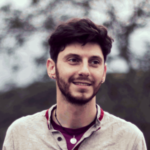 Robbie I'Anson Price
Filmmaker / Scientist / Science Communicator
Robbie I'Anson Price
Filmmaker / Scientist / Science Communicator
Communicating your work is perhaps one of the most important (and often overlooked) jobs of any scientist. Day 1 of this course challenged us to think about how we can effectively communicate our work to different parts of society: the general public, policy makers, business leaders and journalists. Submarine landslides are a significant geohazard, but much of the public are not even aware that they exist. As geoscientists we have an important role to play in communicating risk and information about natural hazards to the wider public.
The second day of the course Robbie took us out of our comfort zones and asked us to plan some scientific outreach—in the form of a short YouTube-style video. For many of us this was the first time even considering making a video about our work.
Robbie invited us all to apply to participate in the Exposure Science Film Hackathon, a three-day course designed to bring together scientists and filmmakers. The goal of the course is for each participating group to create a short but engaging film that communicates their science to a non-scientist audience. For further information about this project, application instructions and examples of previous films, please click here.
Related blog posts from the 'Lake Lucerne Workshop' blog series Location- EAWAG Kastanienbaum
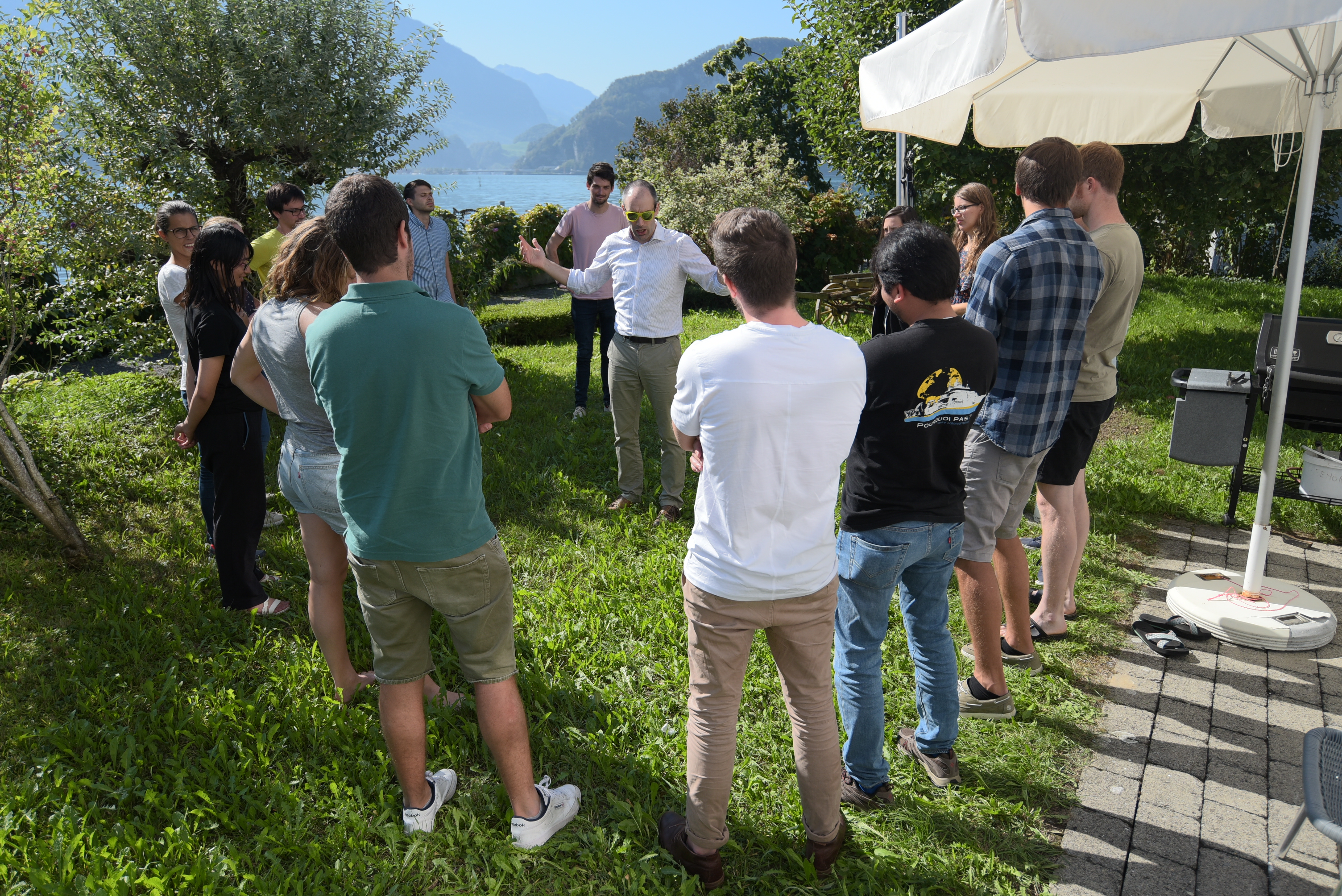
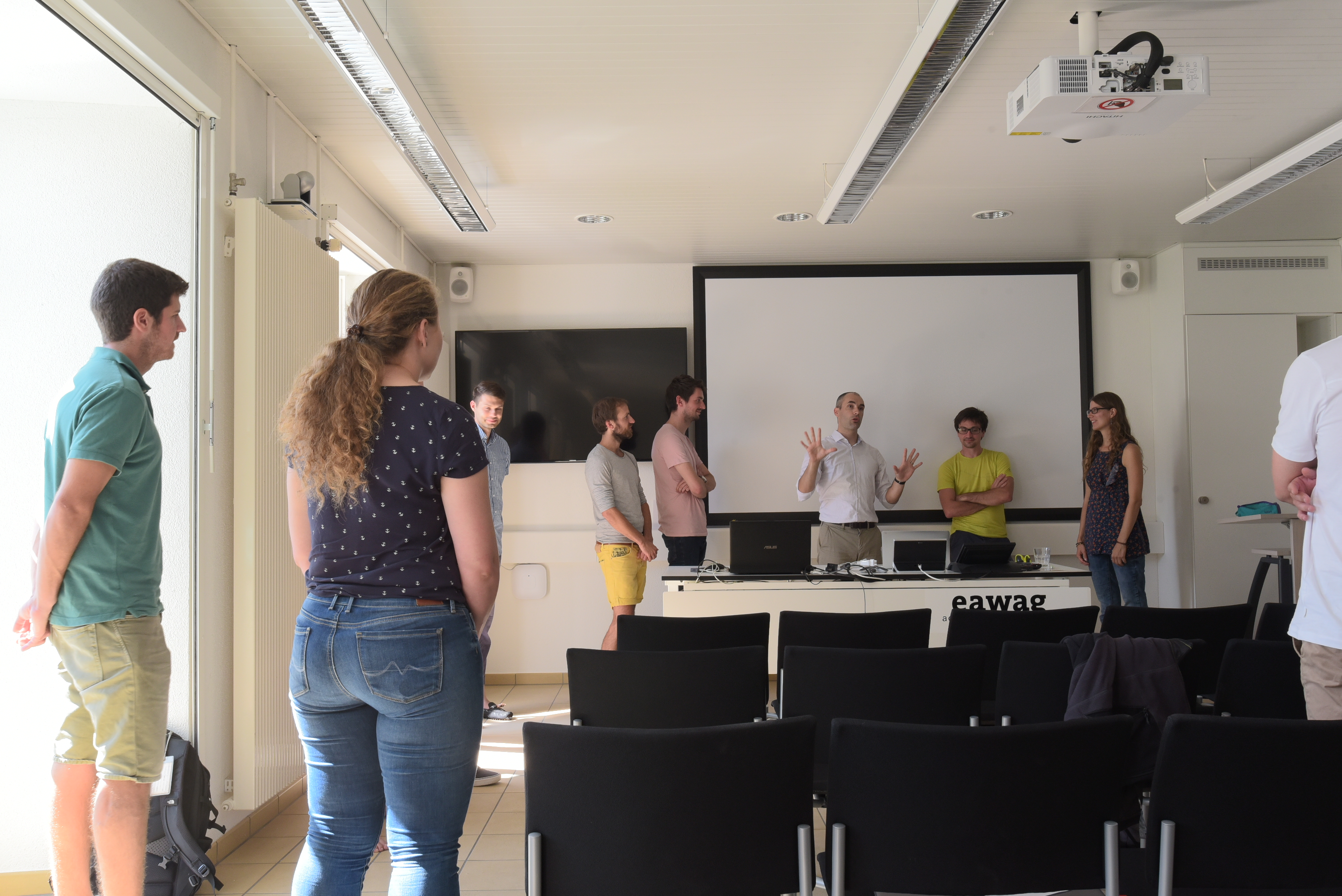
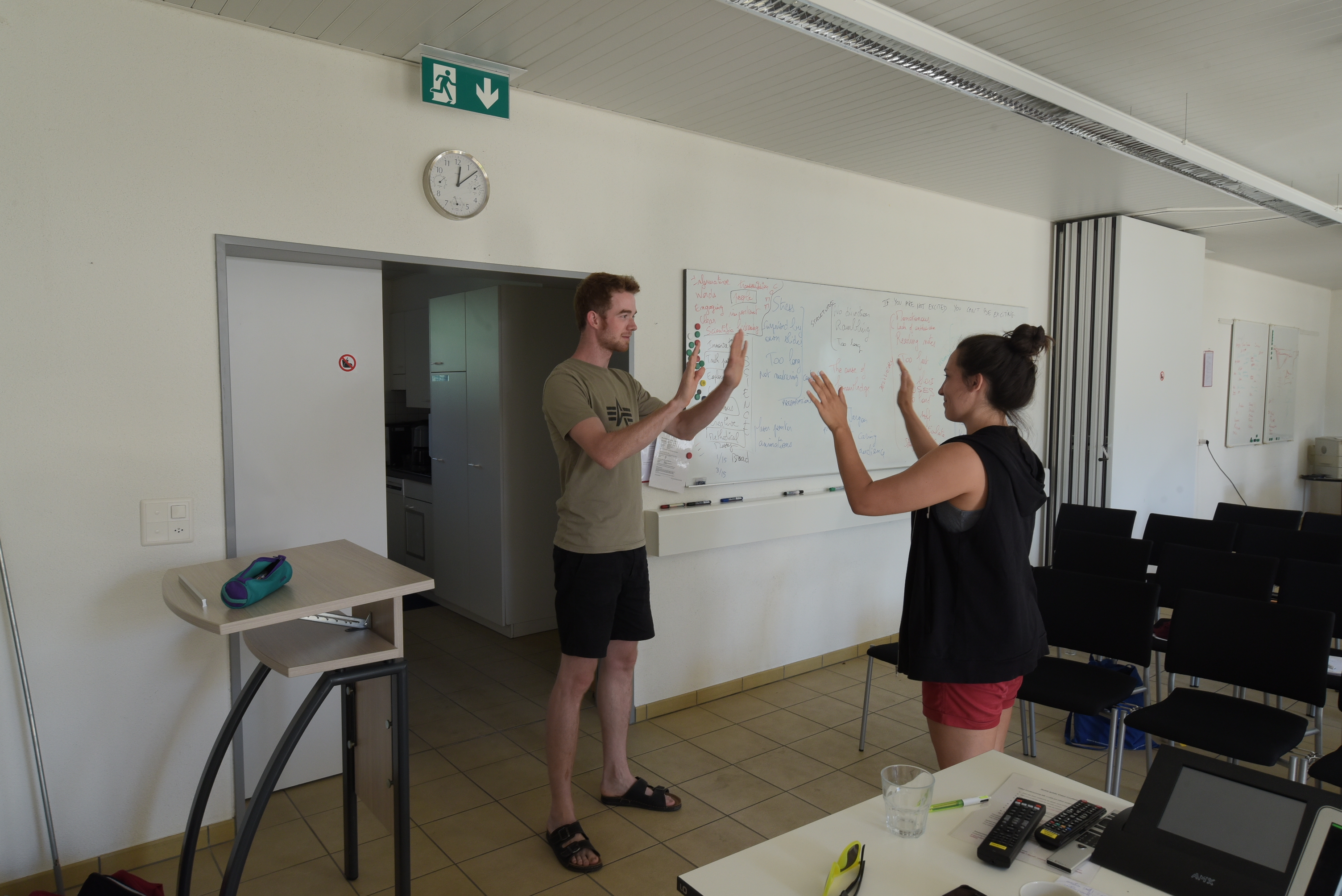
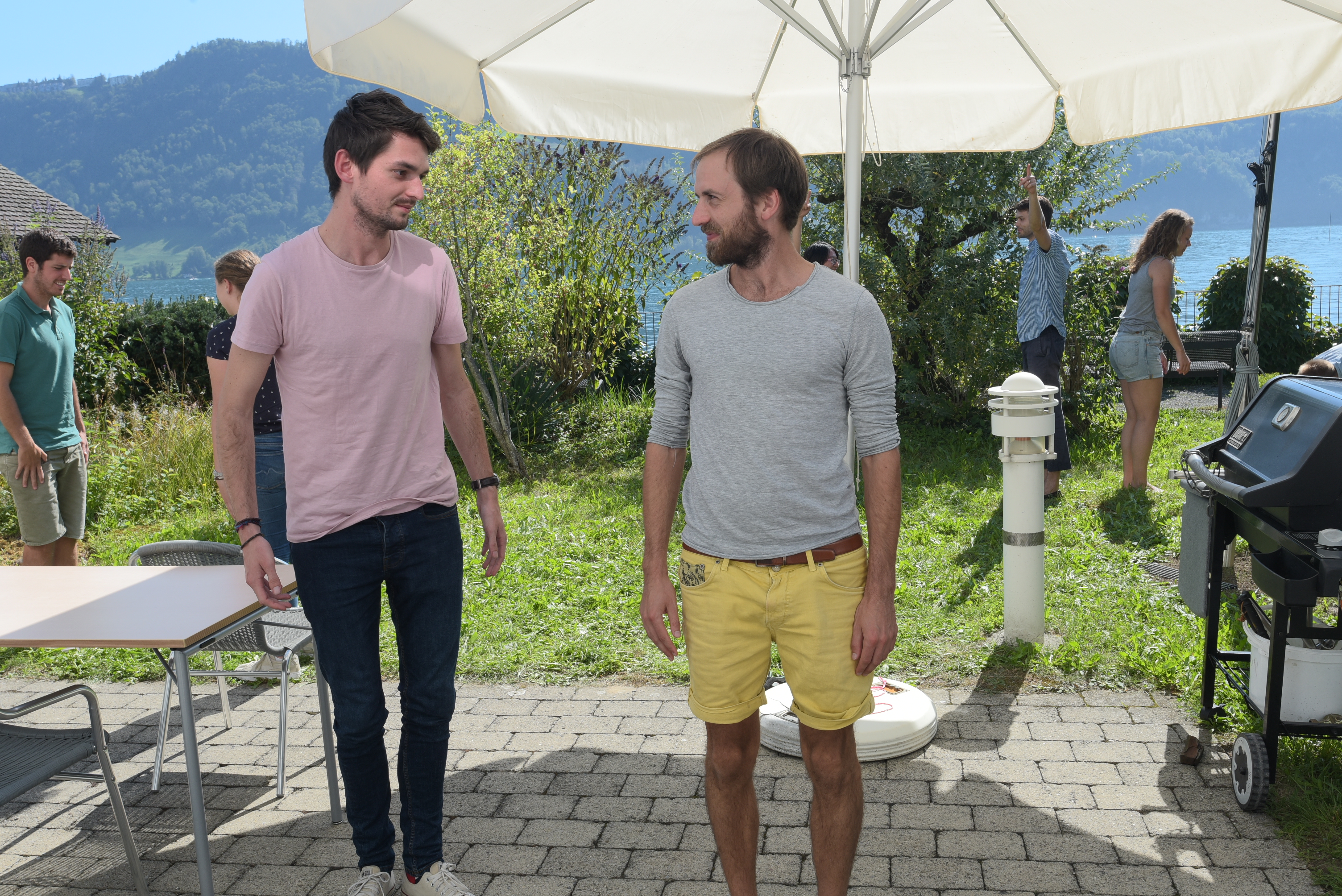
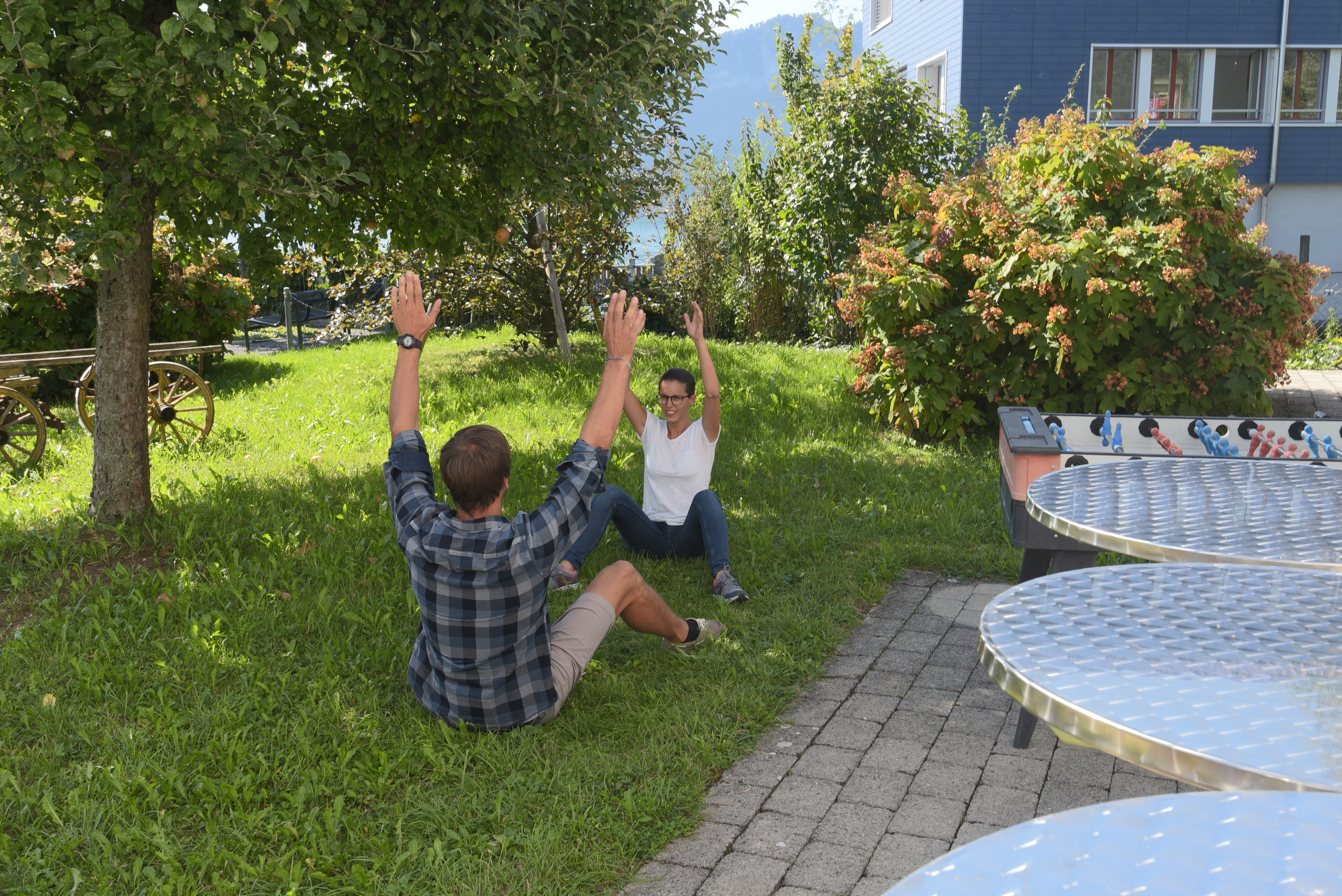
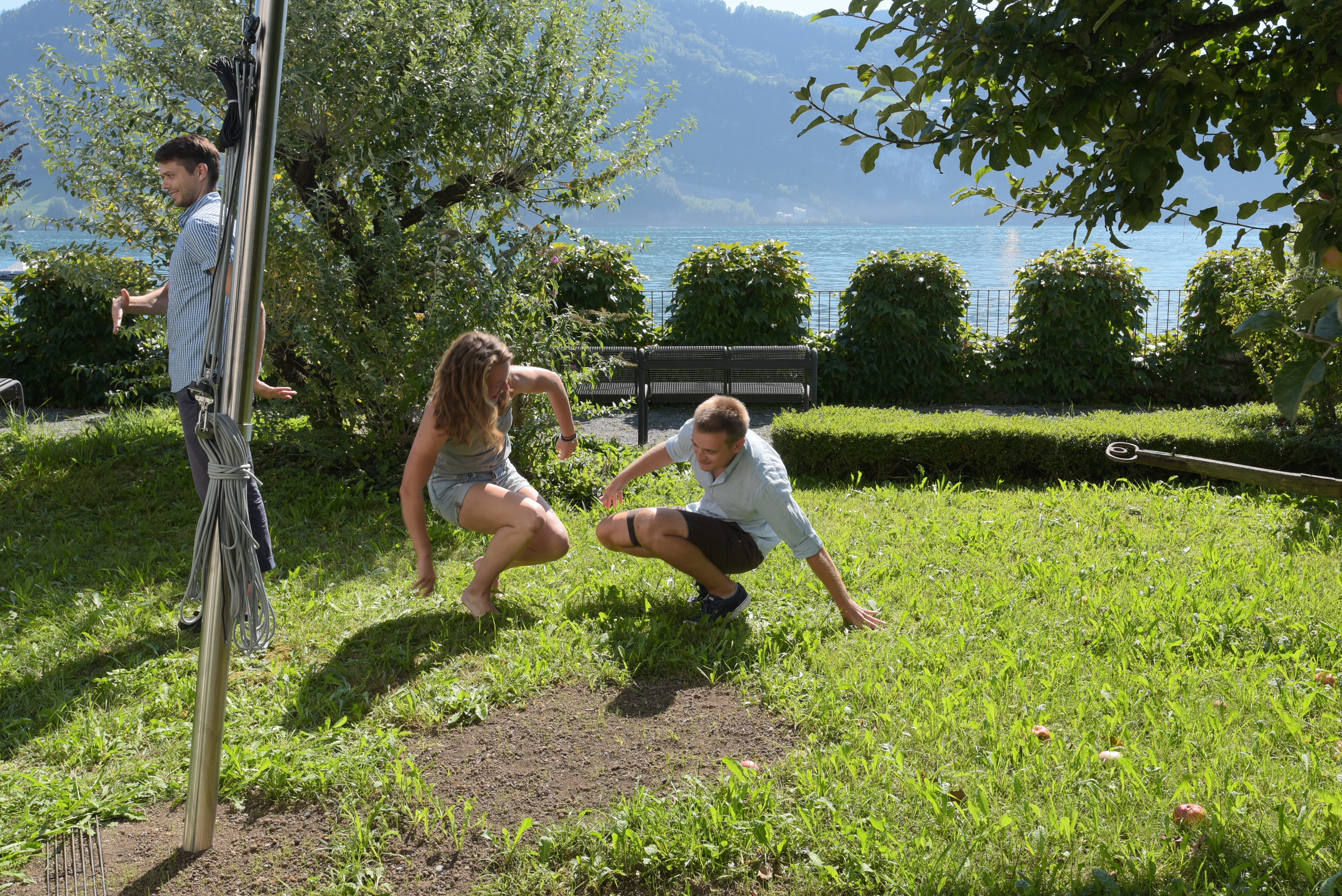
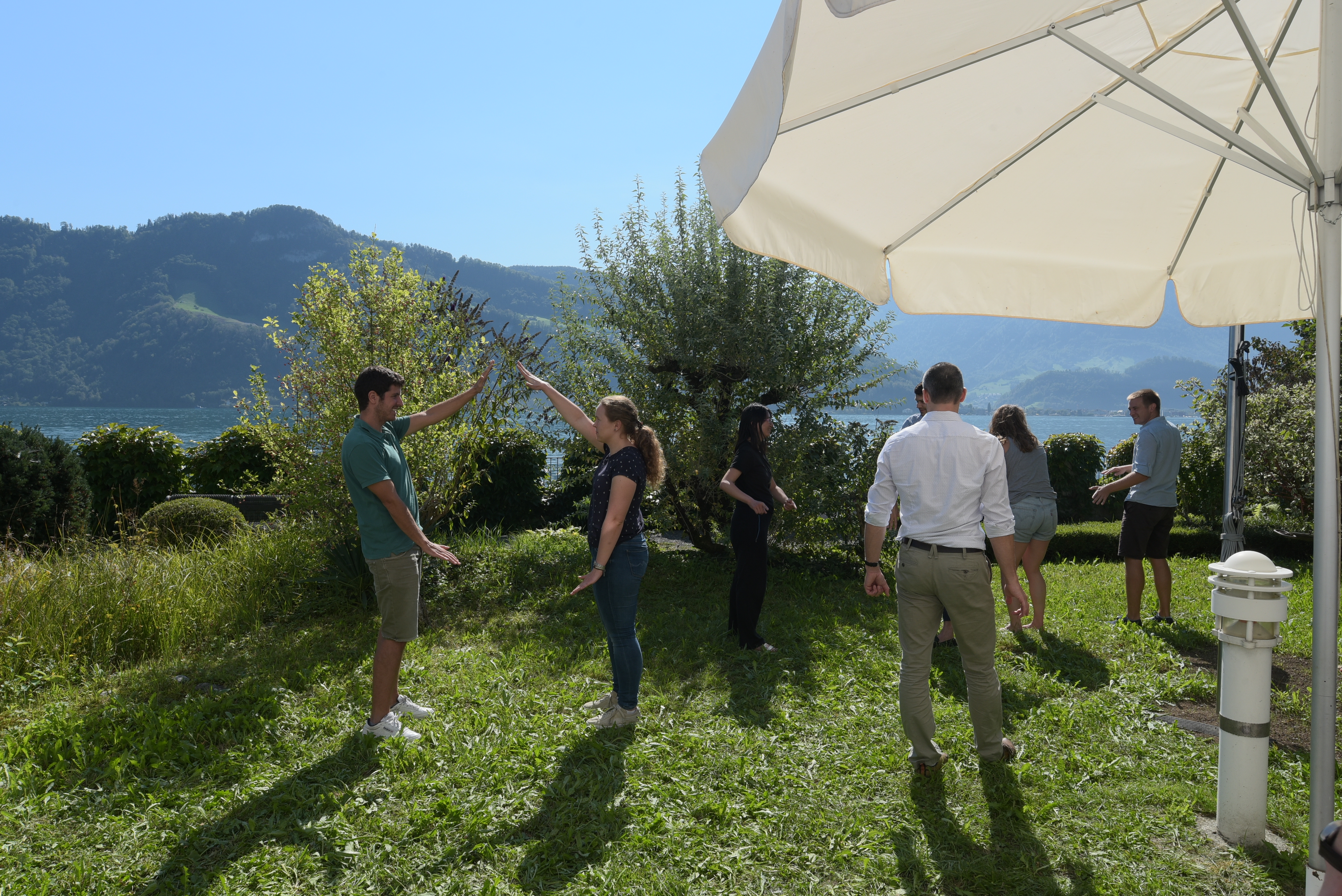
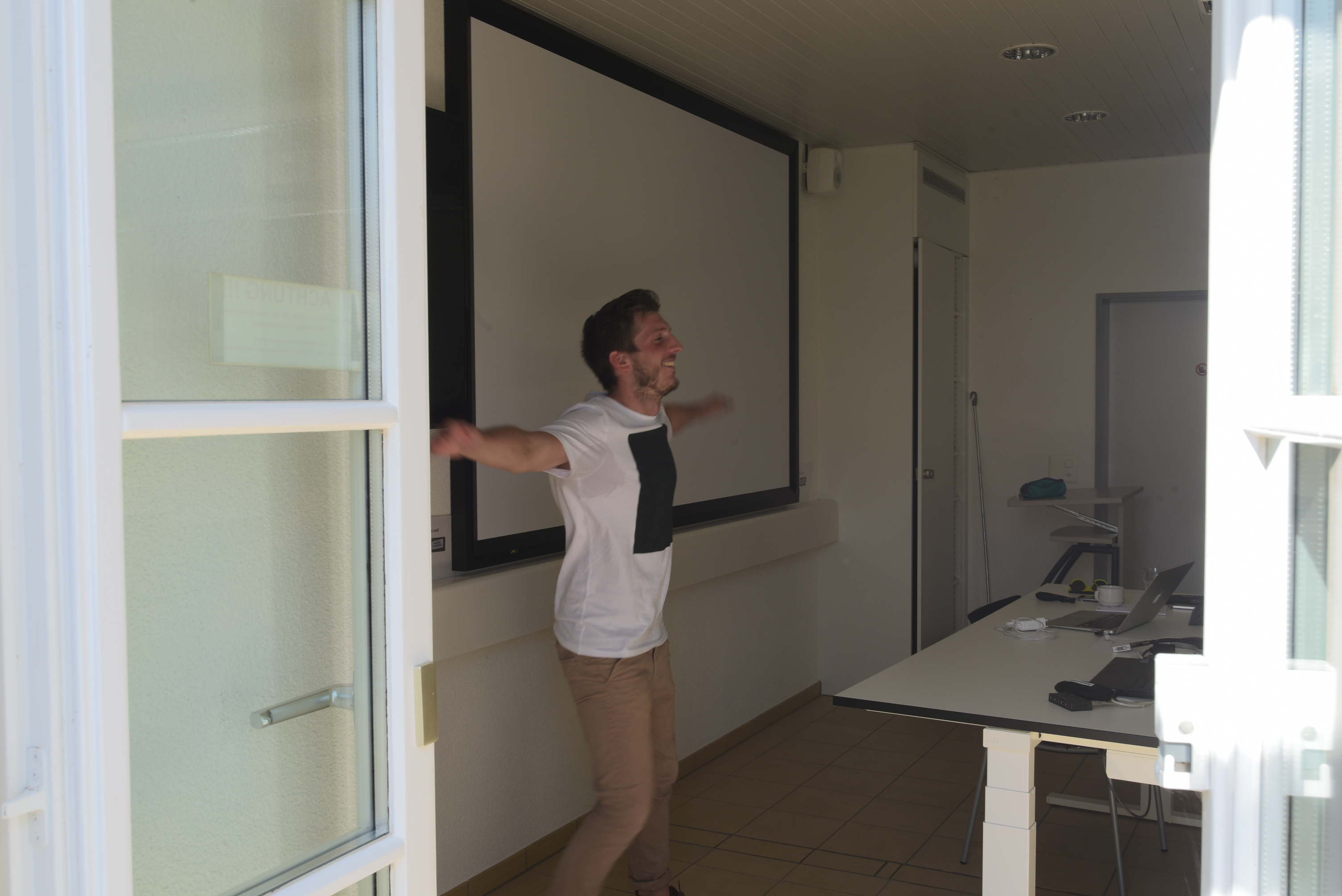
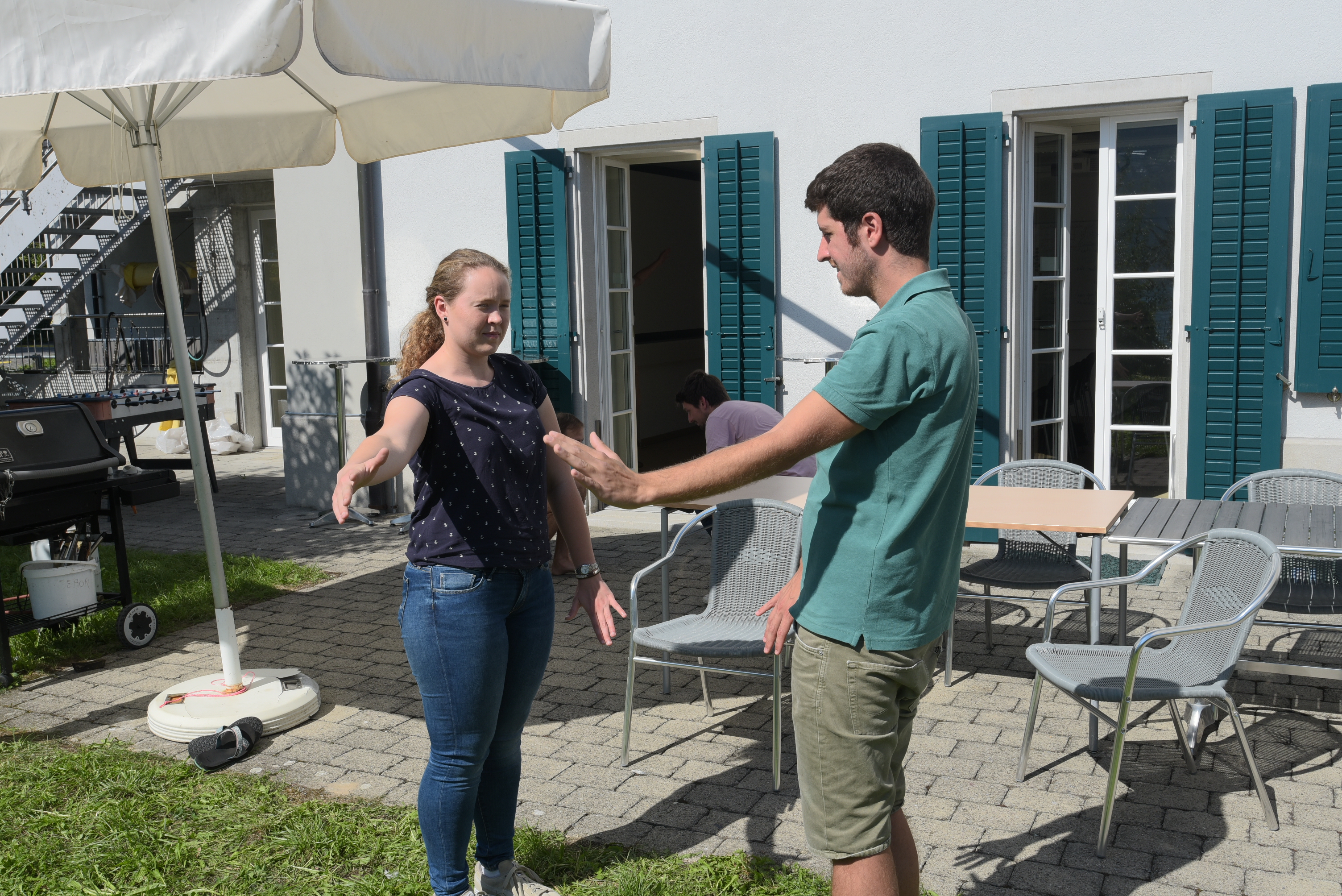
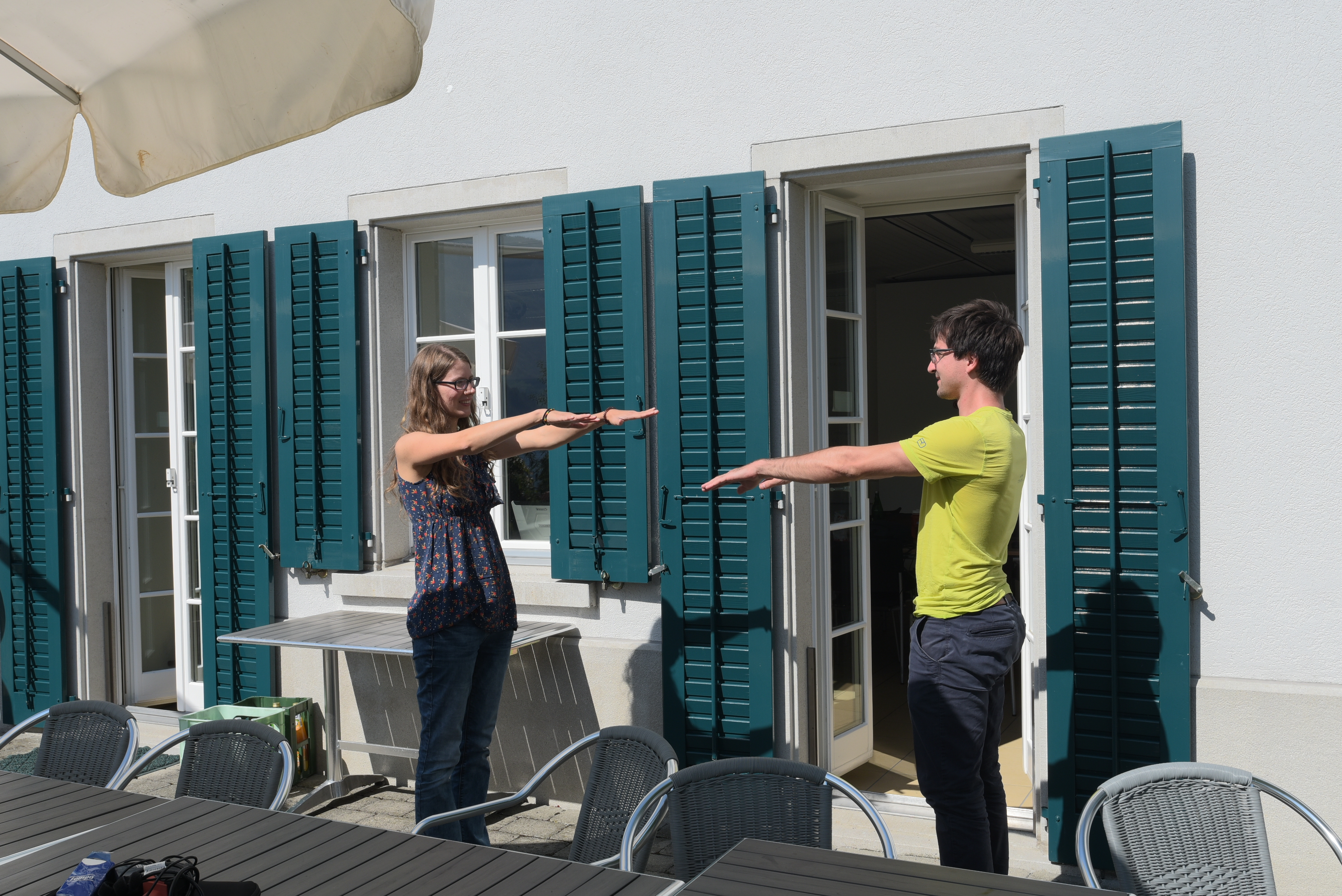
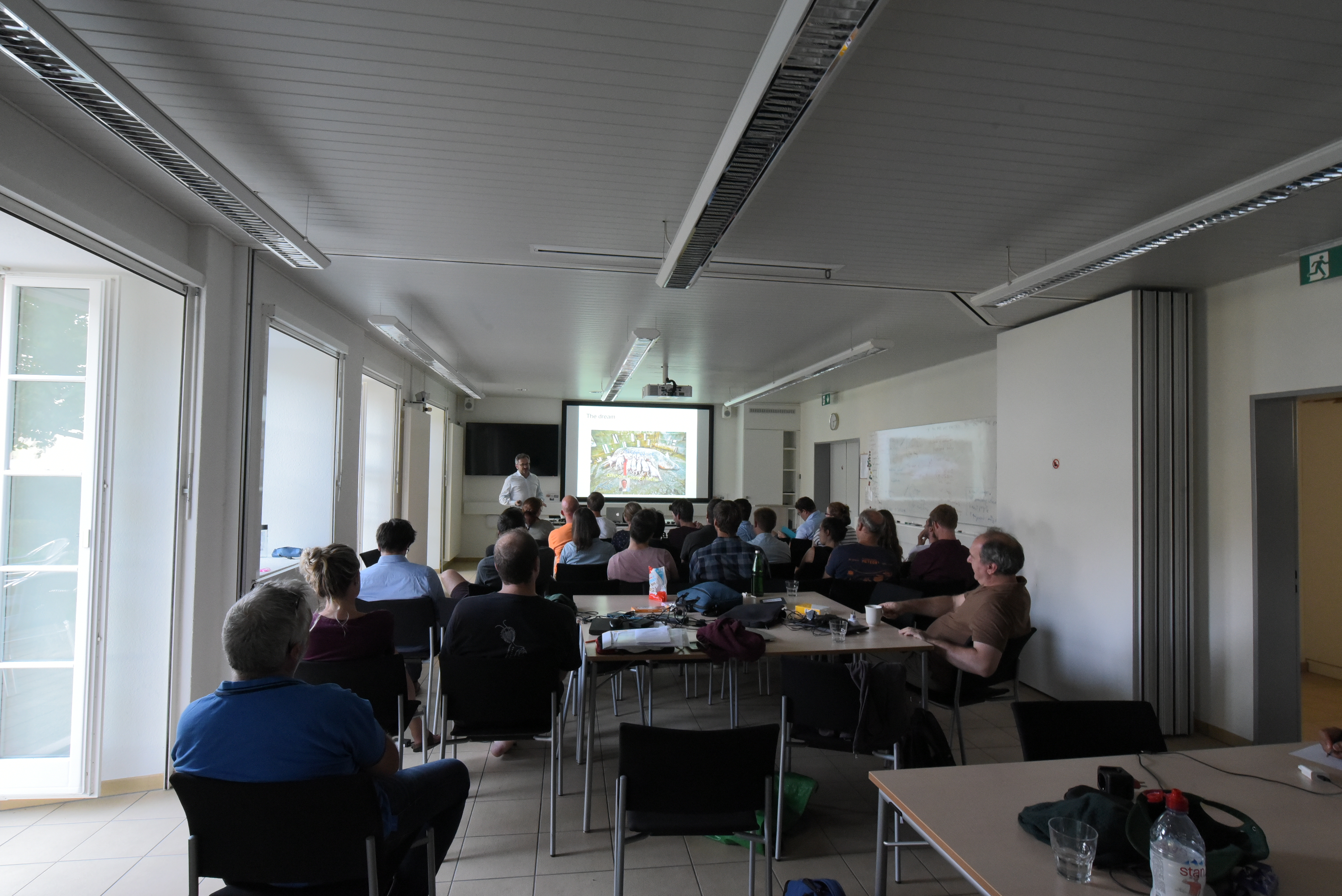
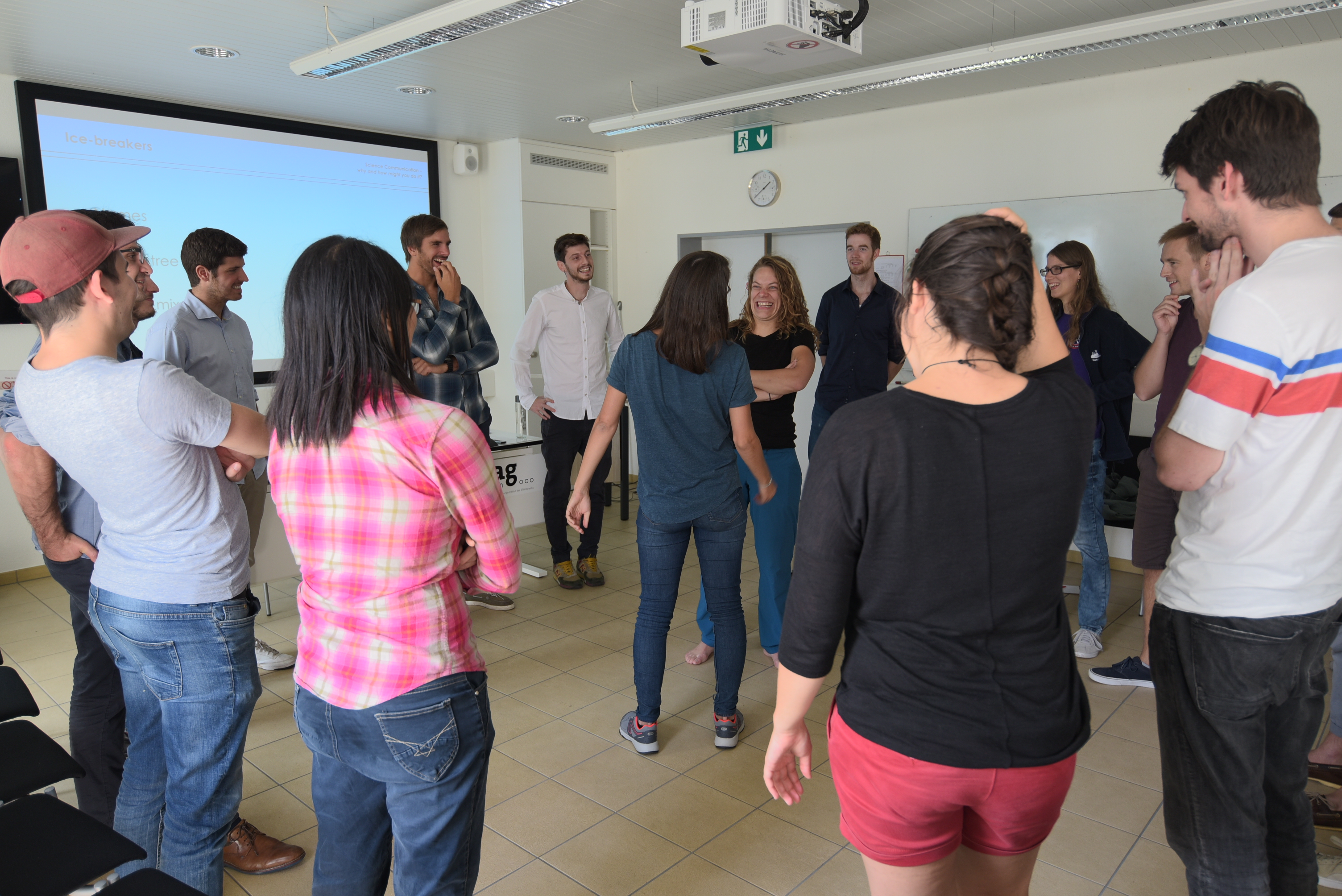
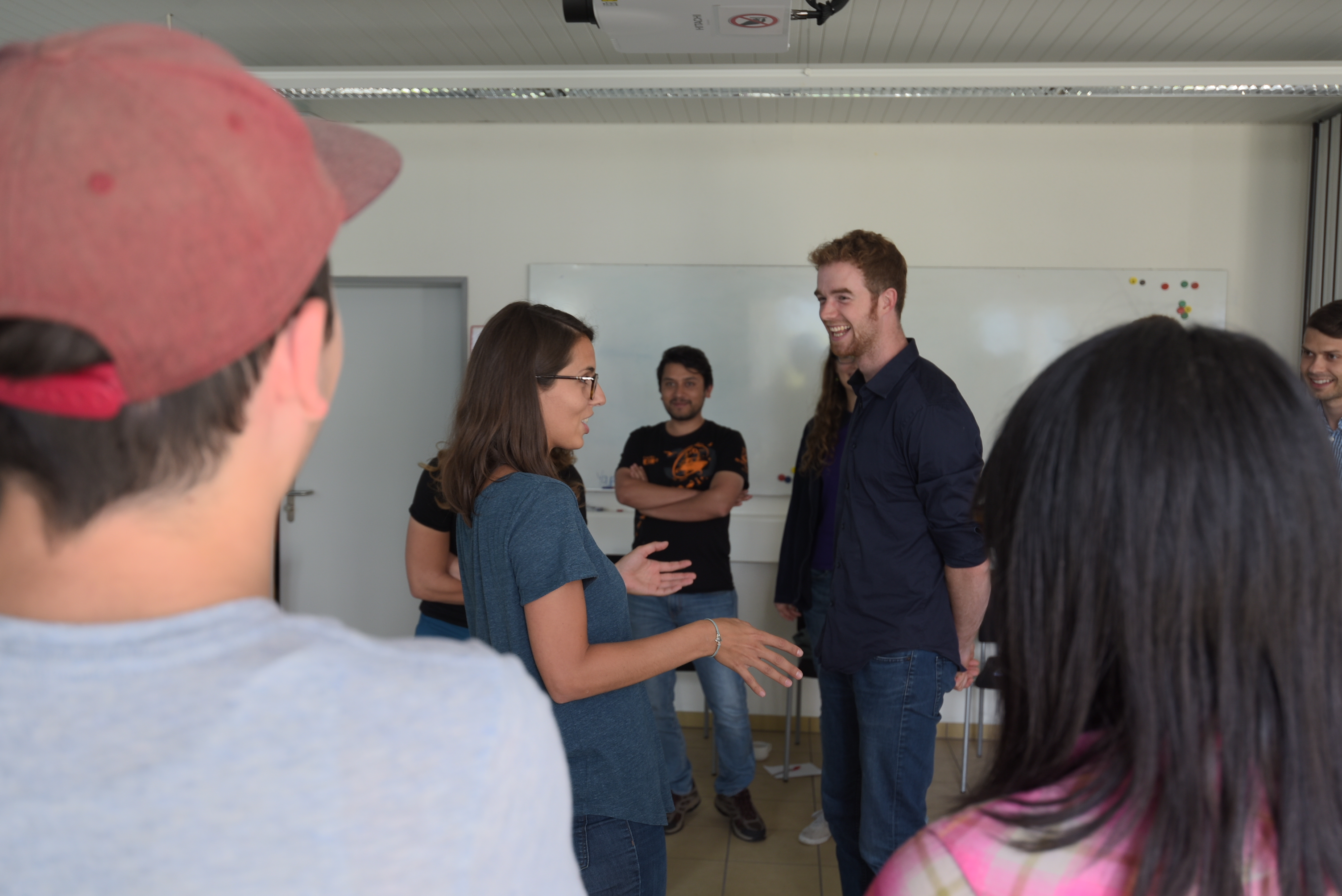
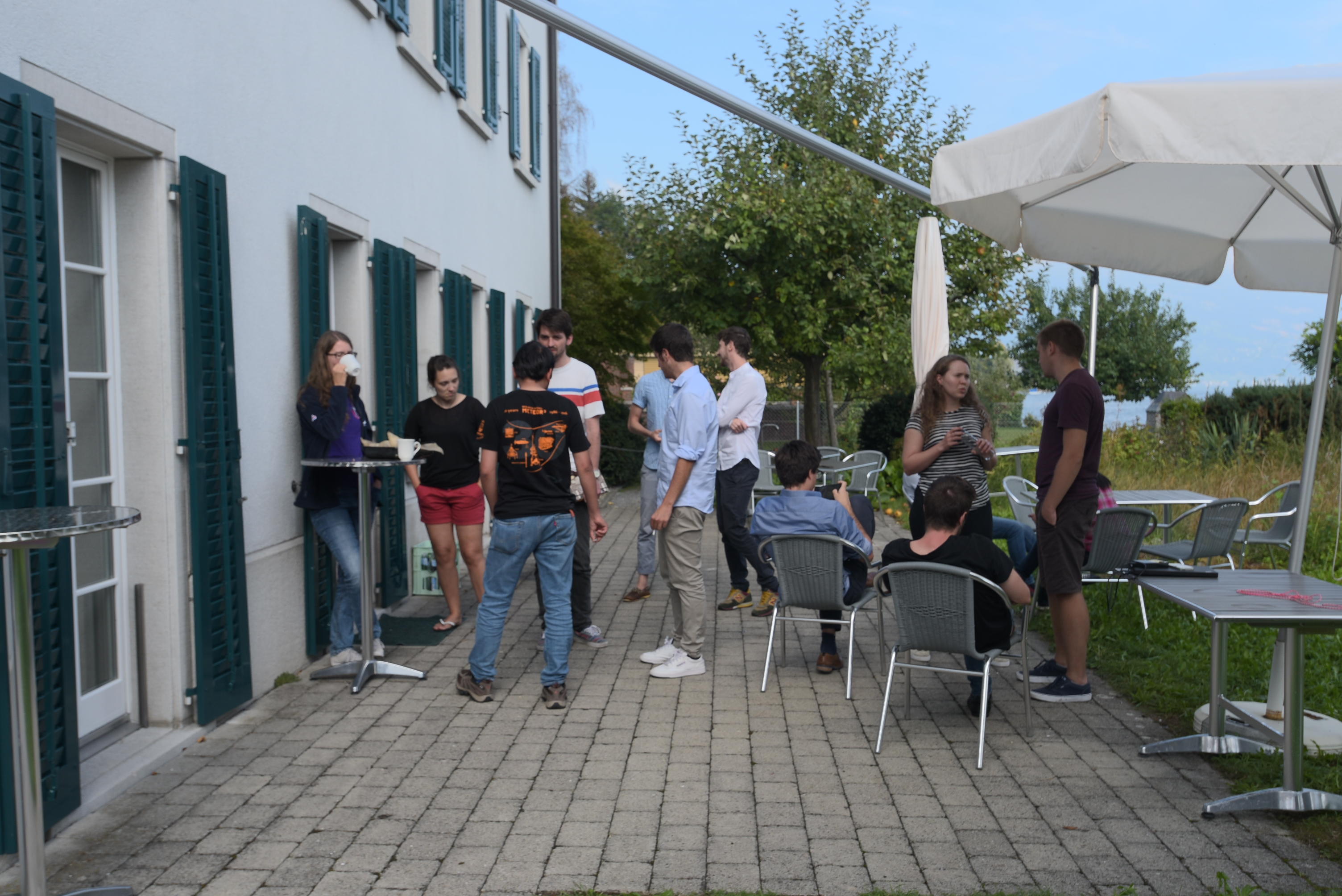
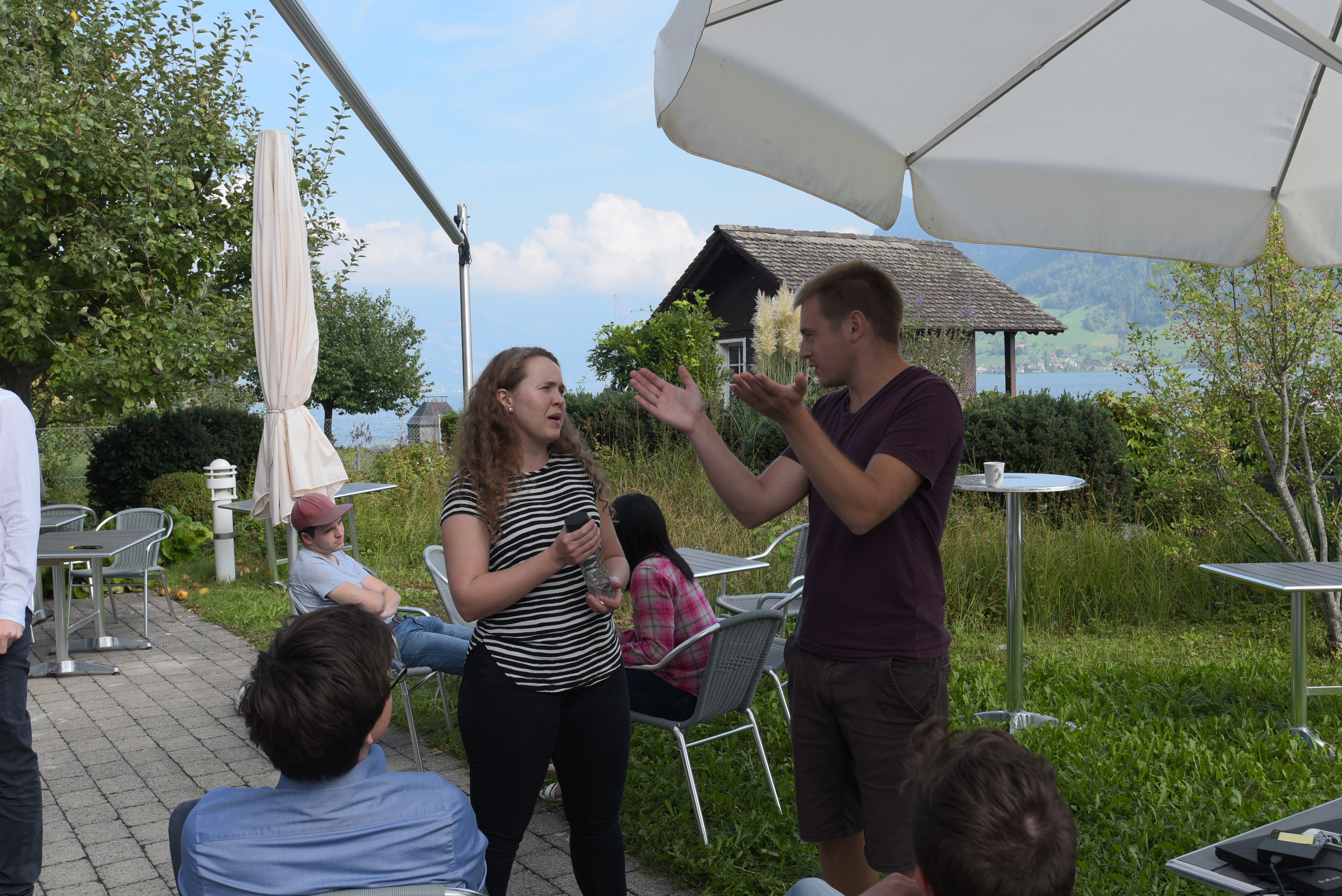
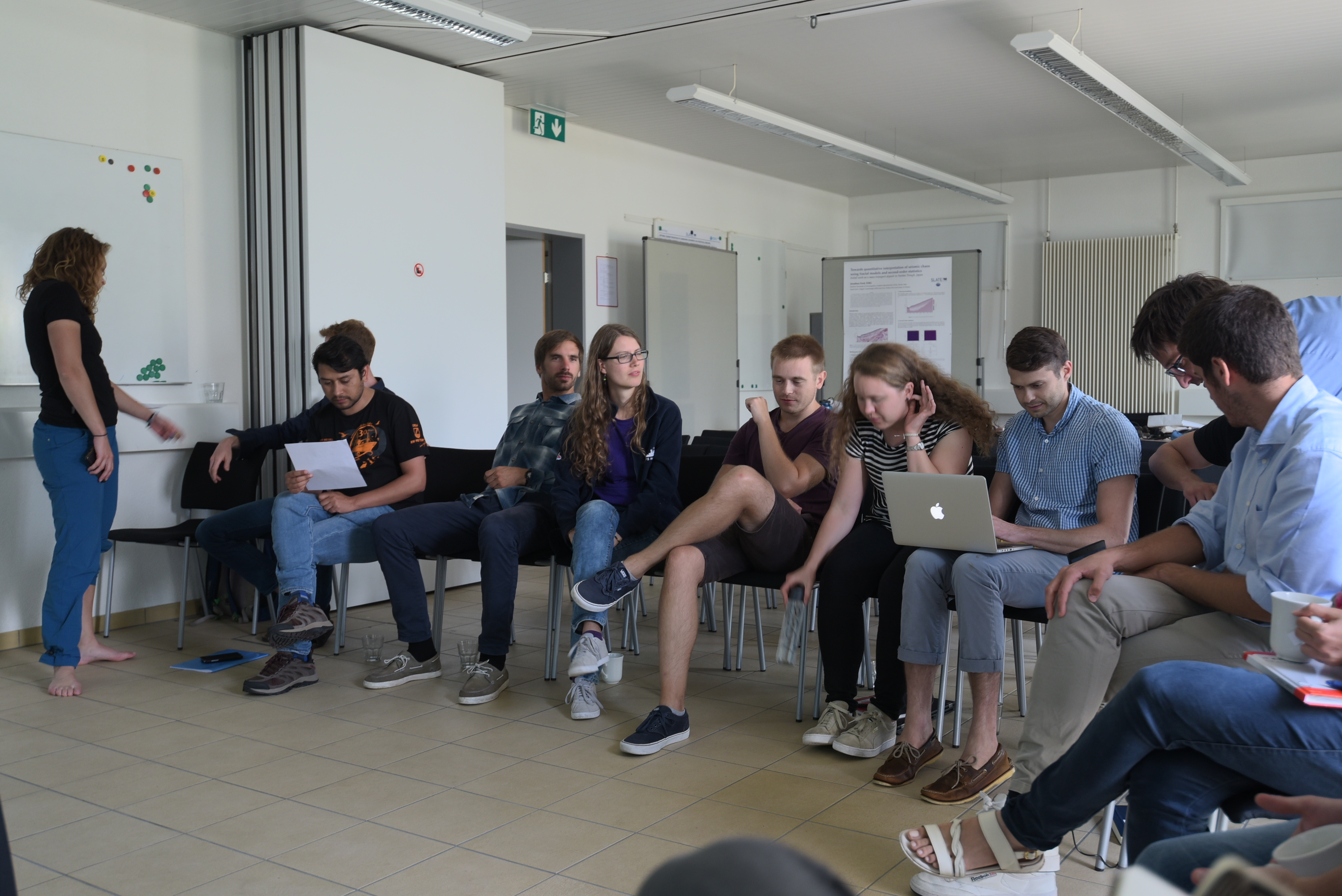
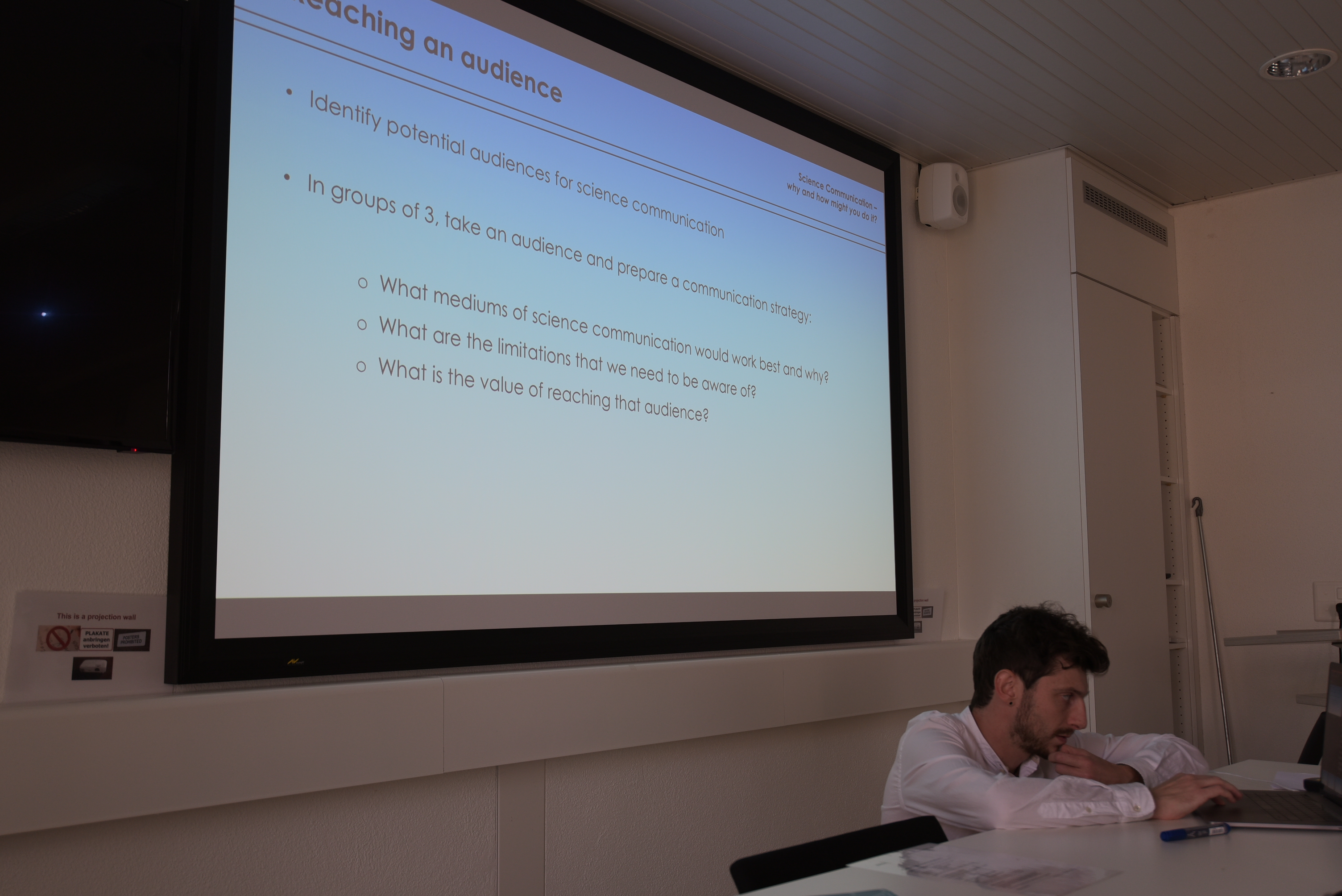
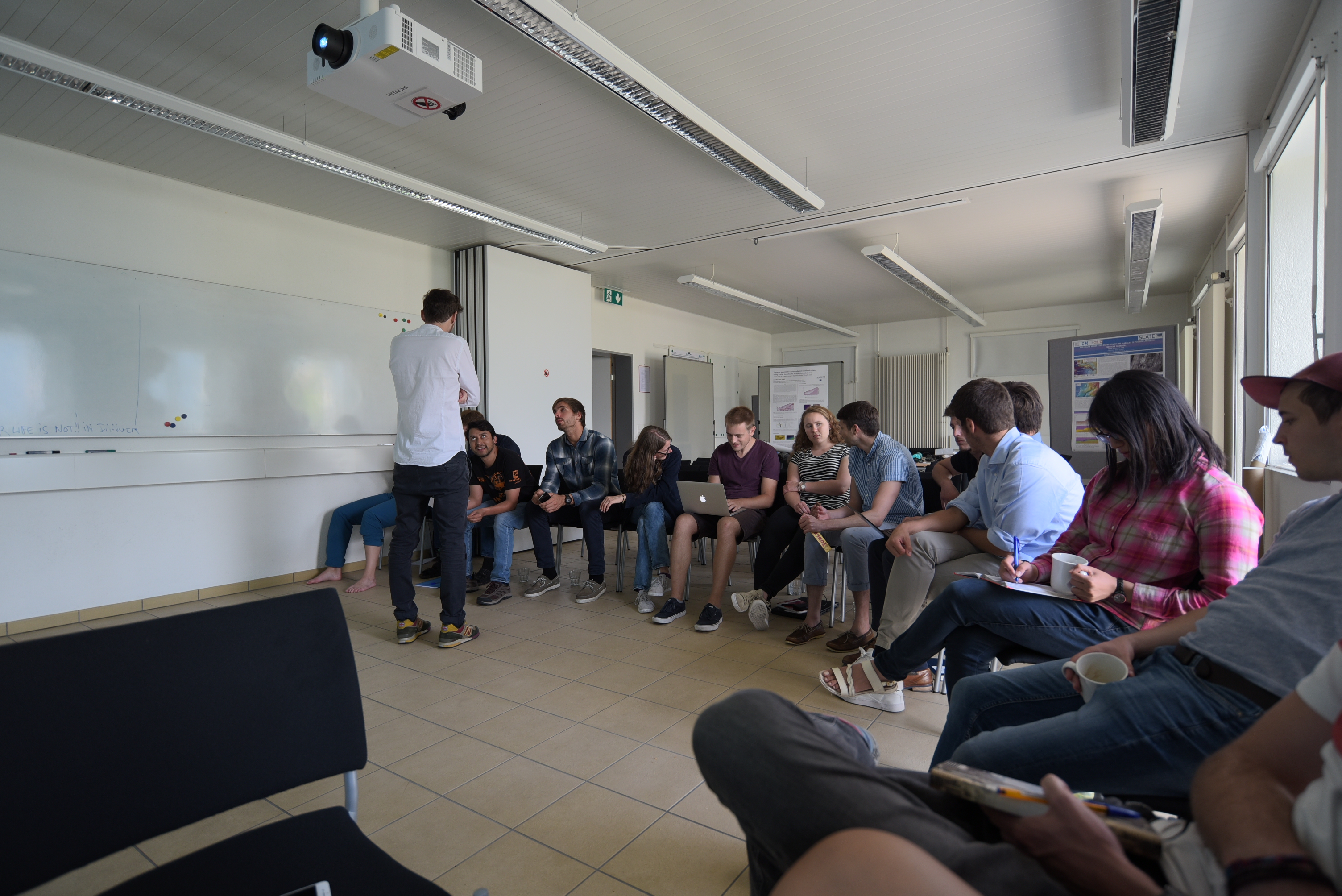
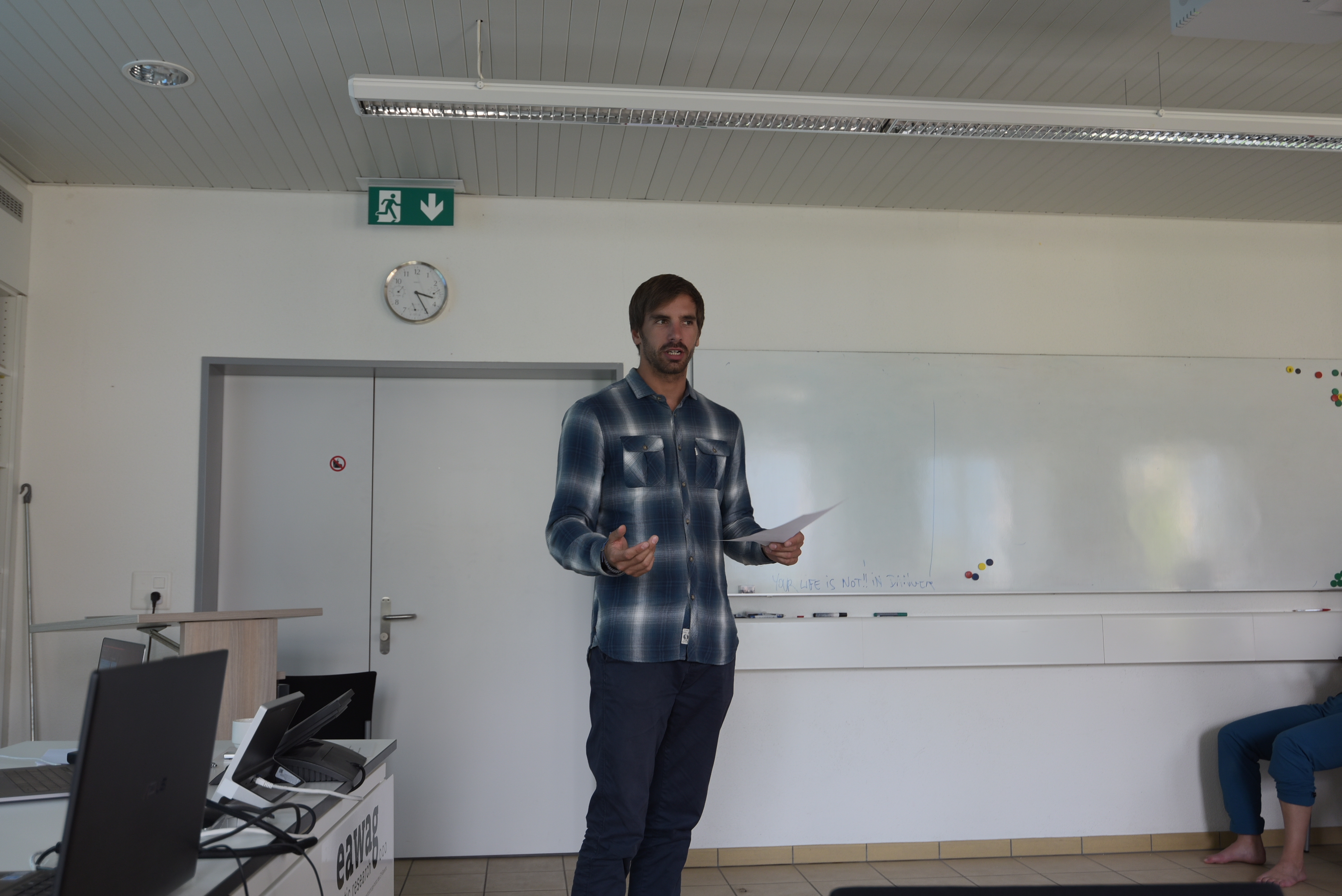
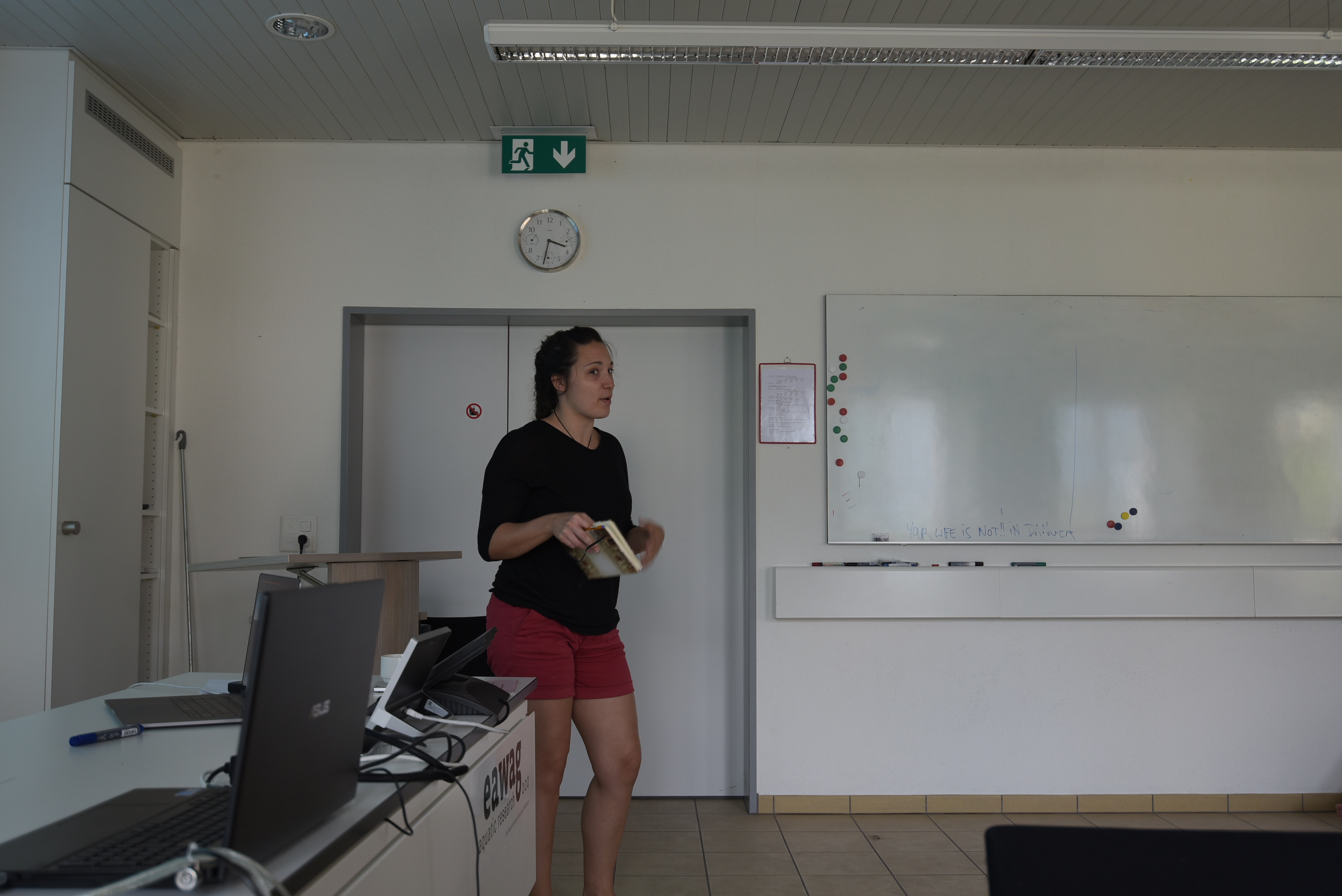
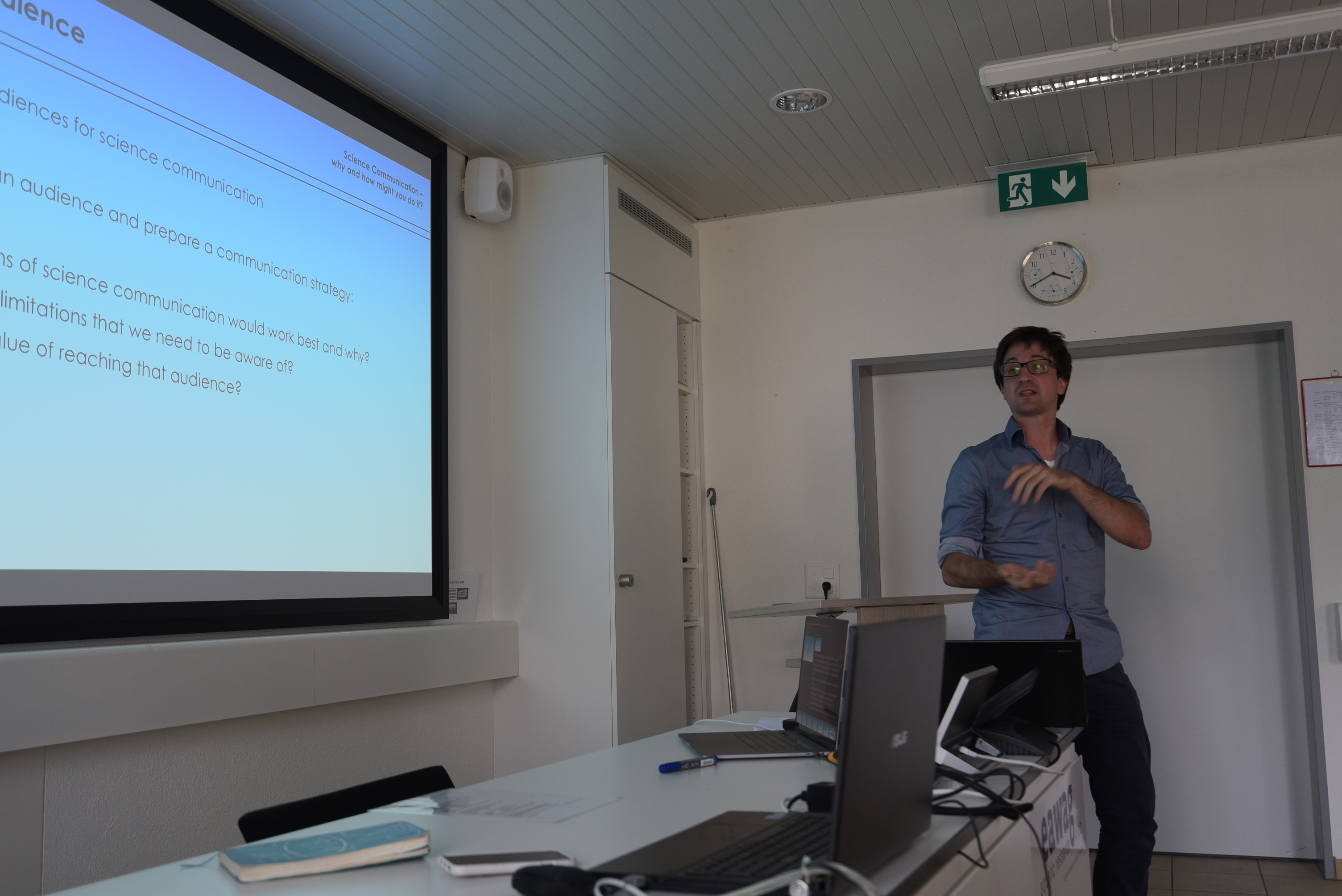
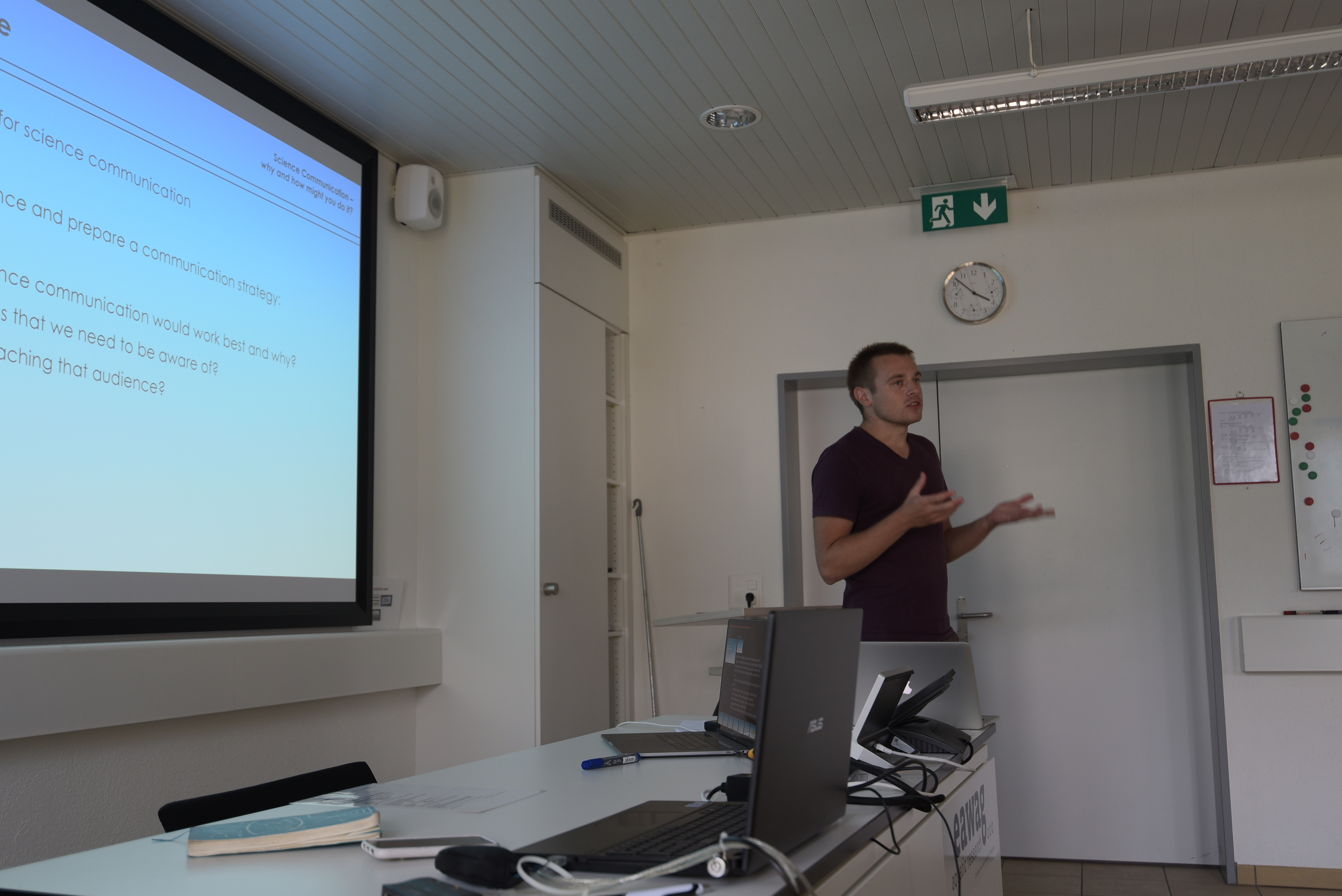
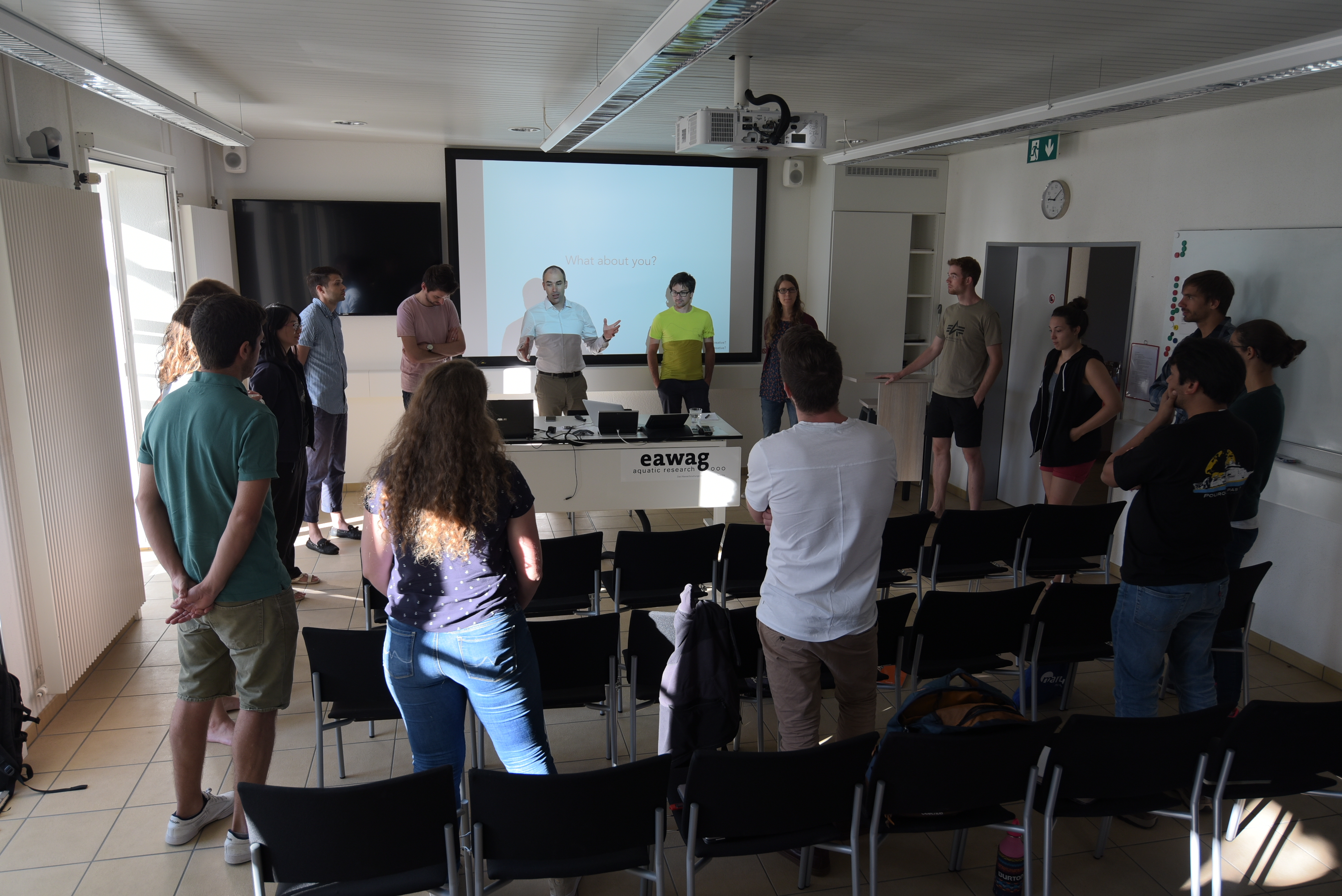
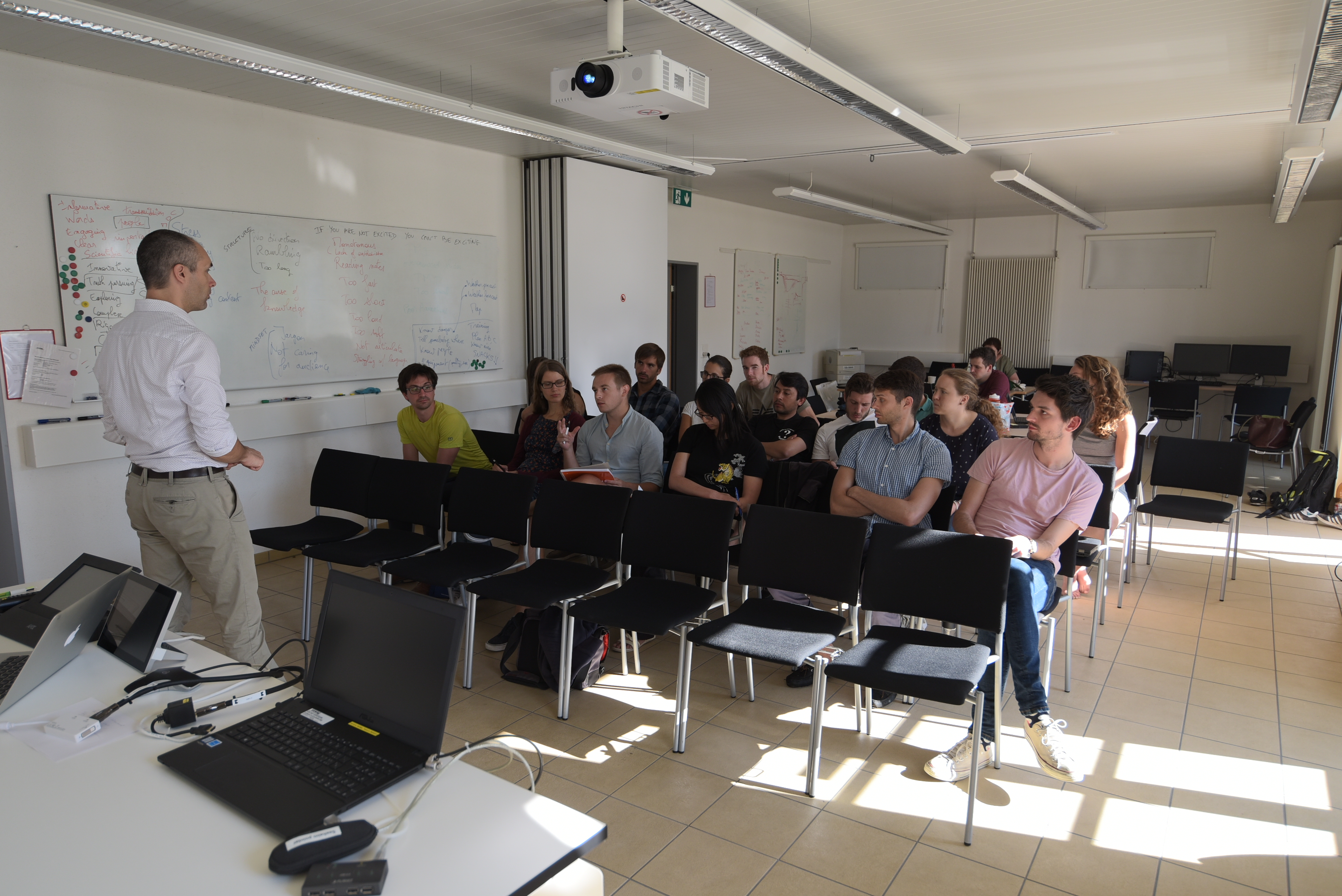
- [log-in required]
- [log-in required]
- [log-in required]
- [log-in required]

